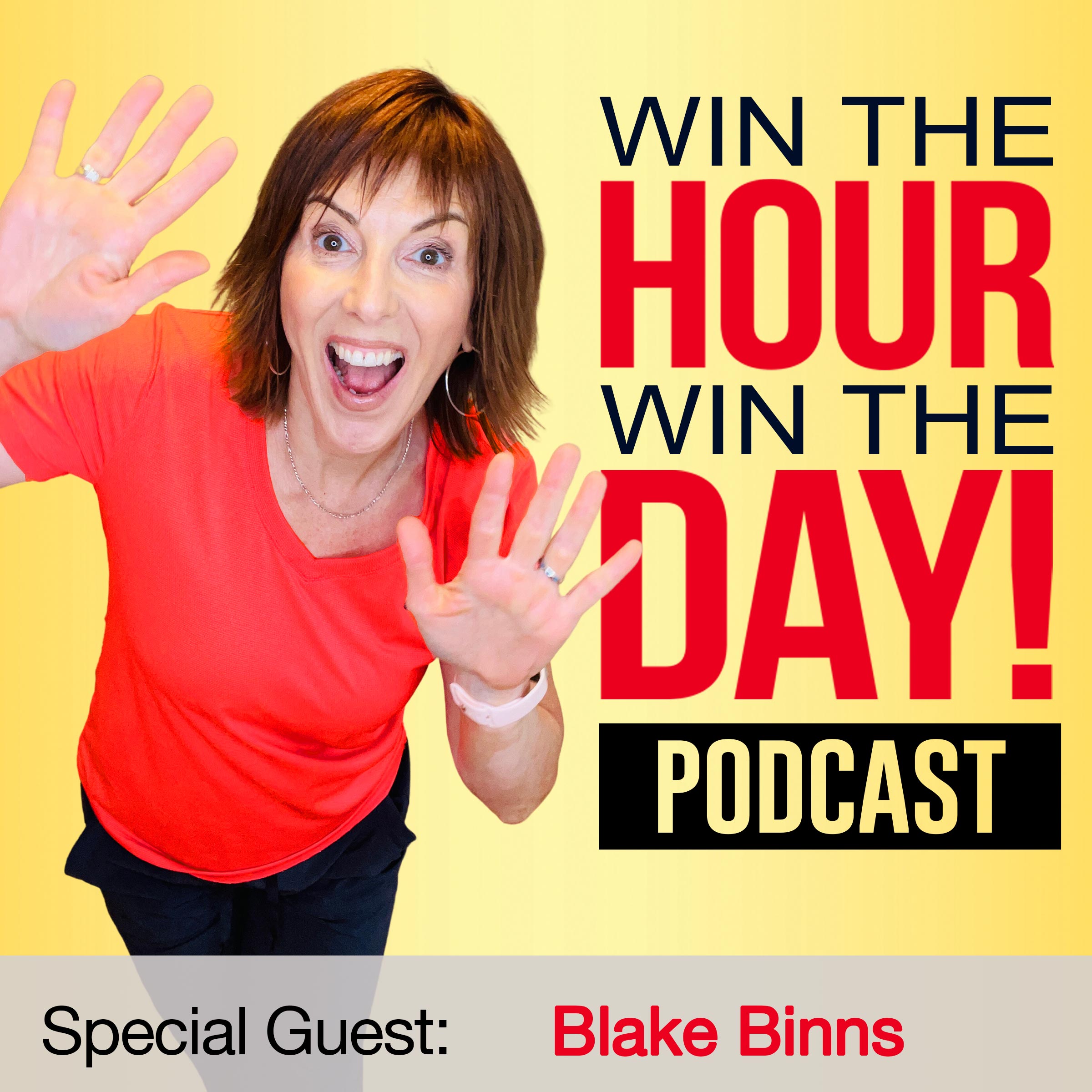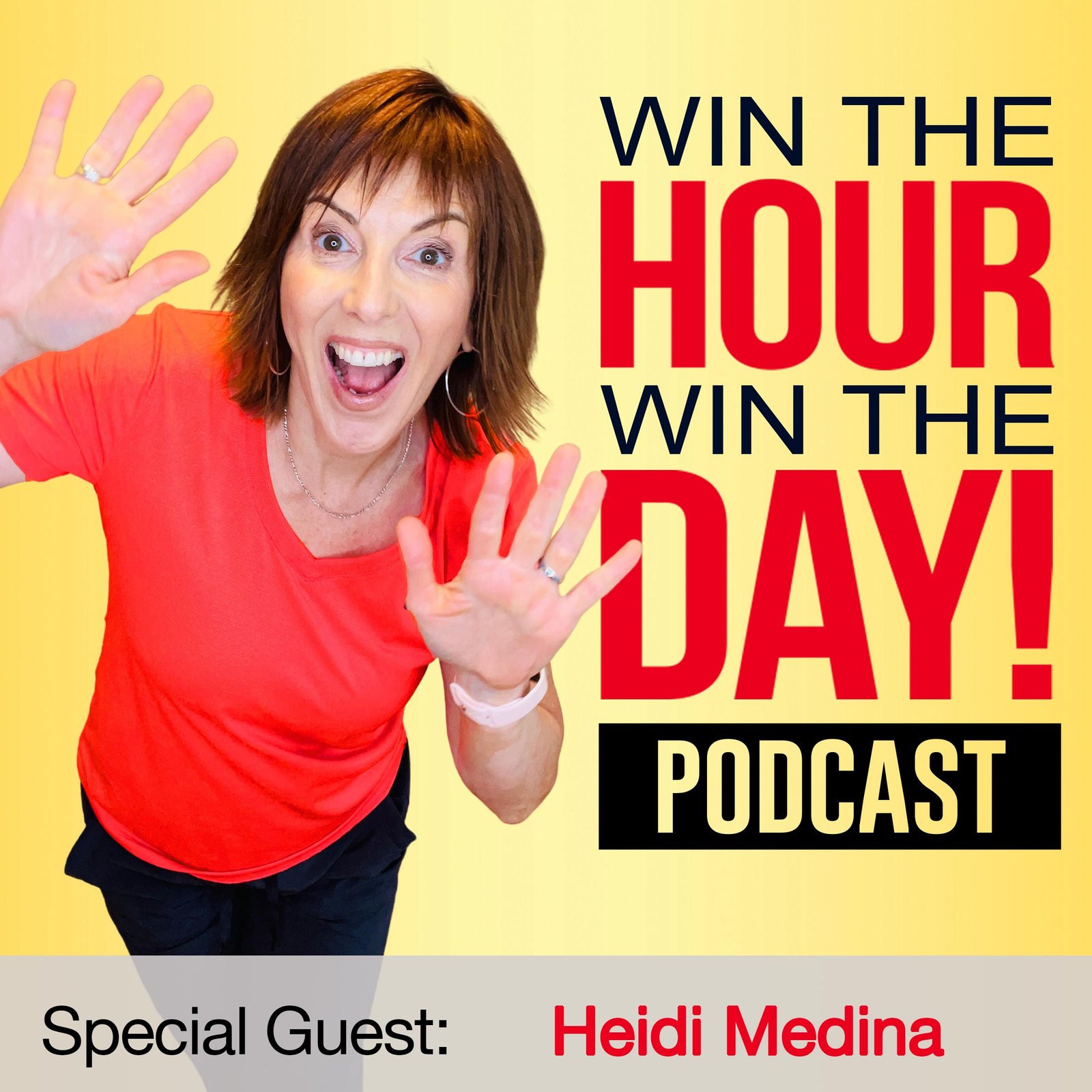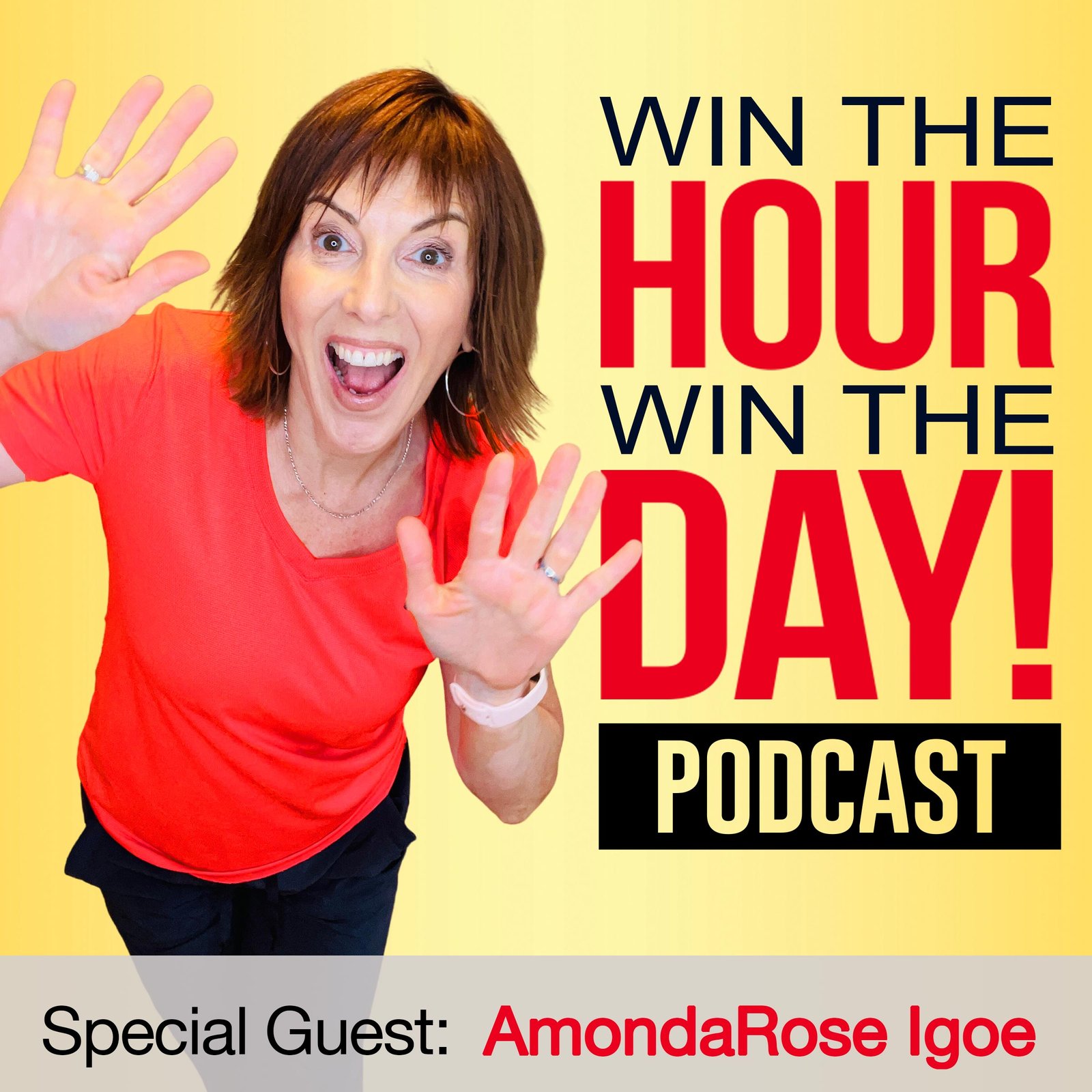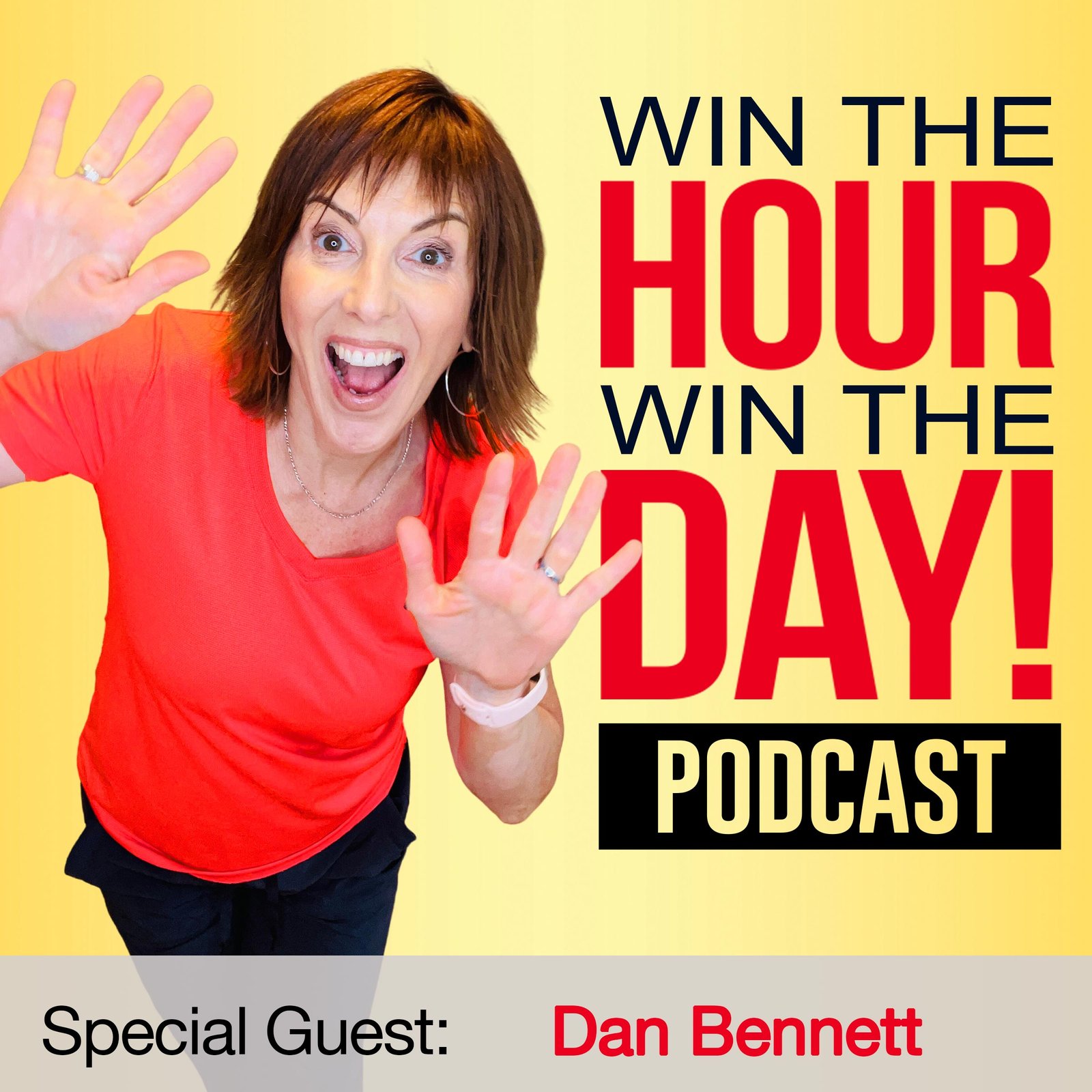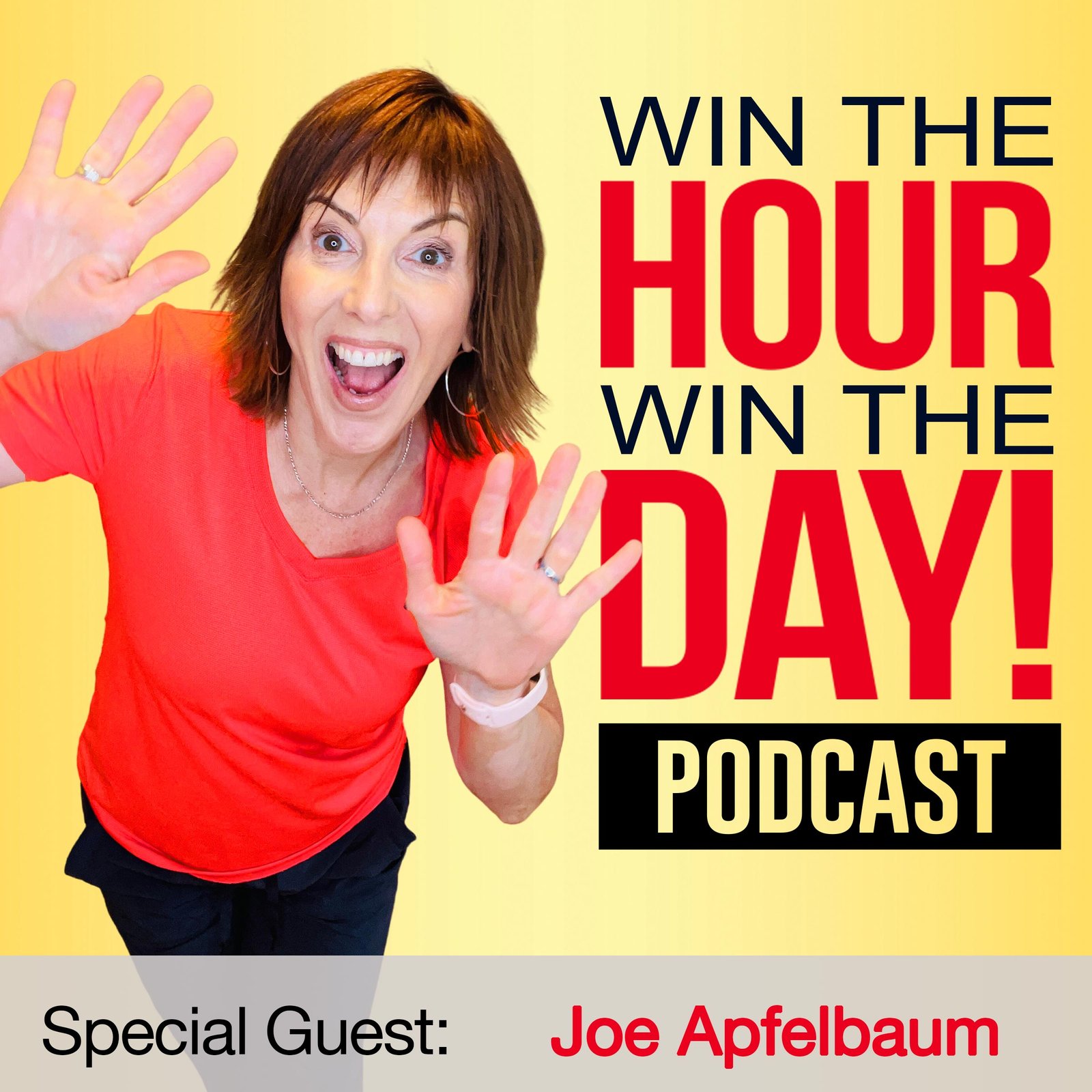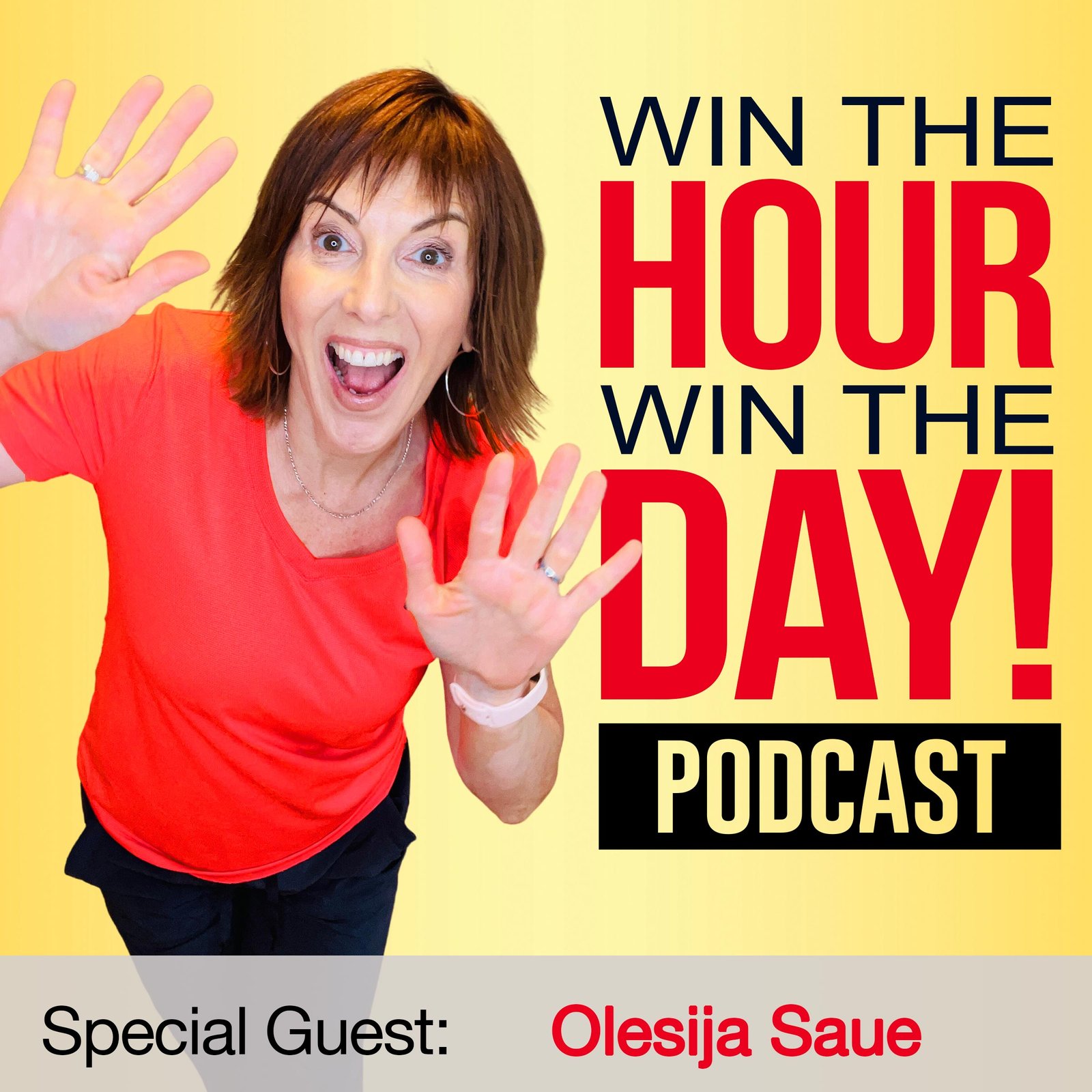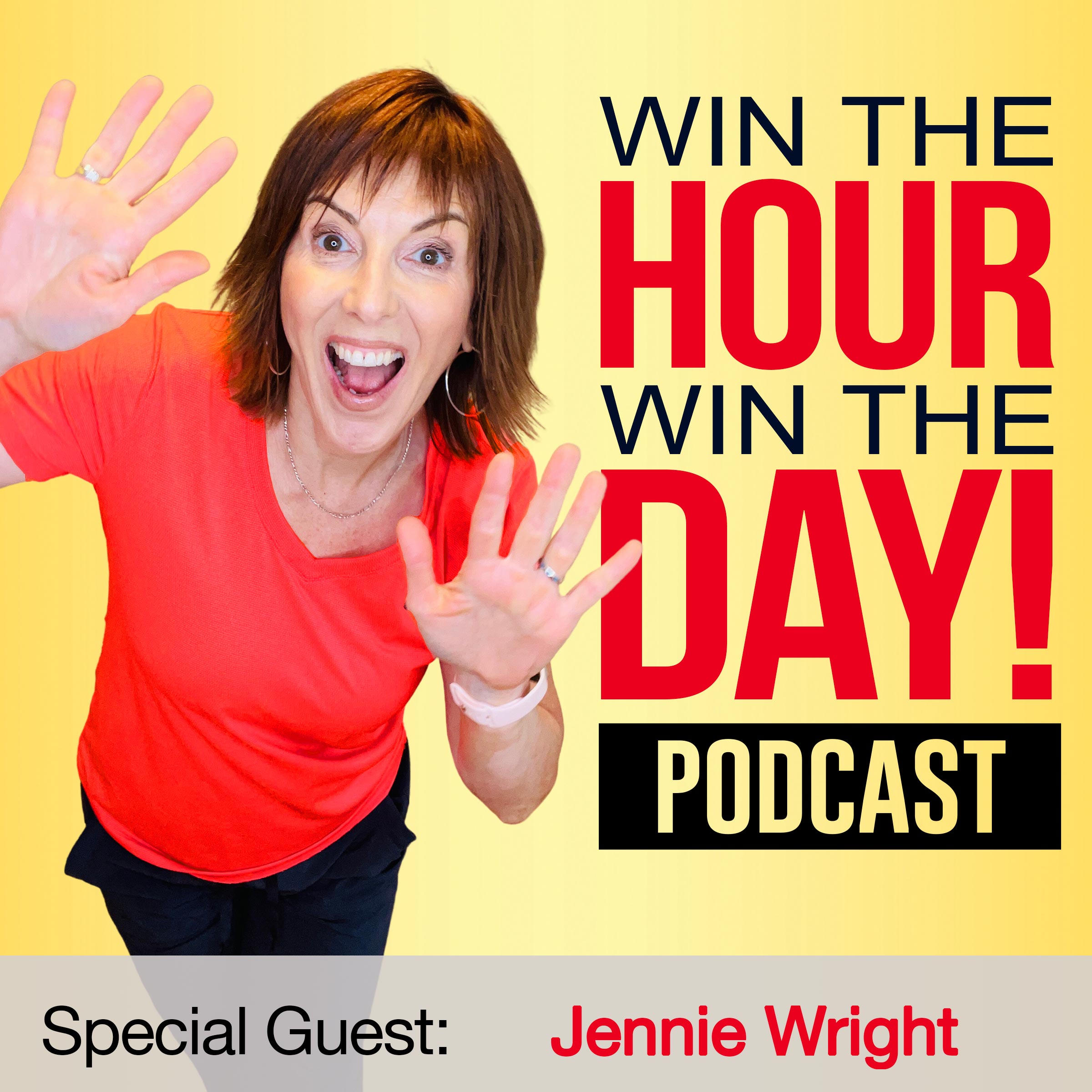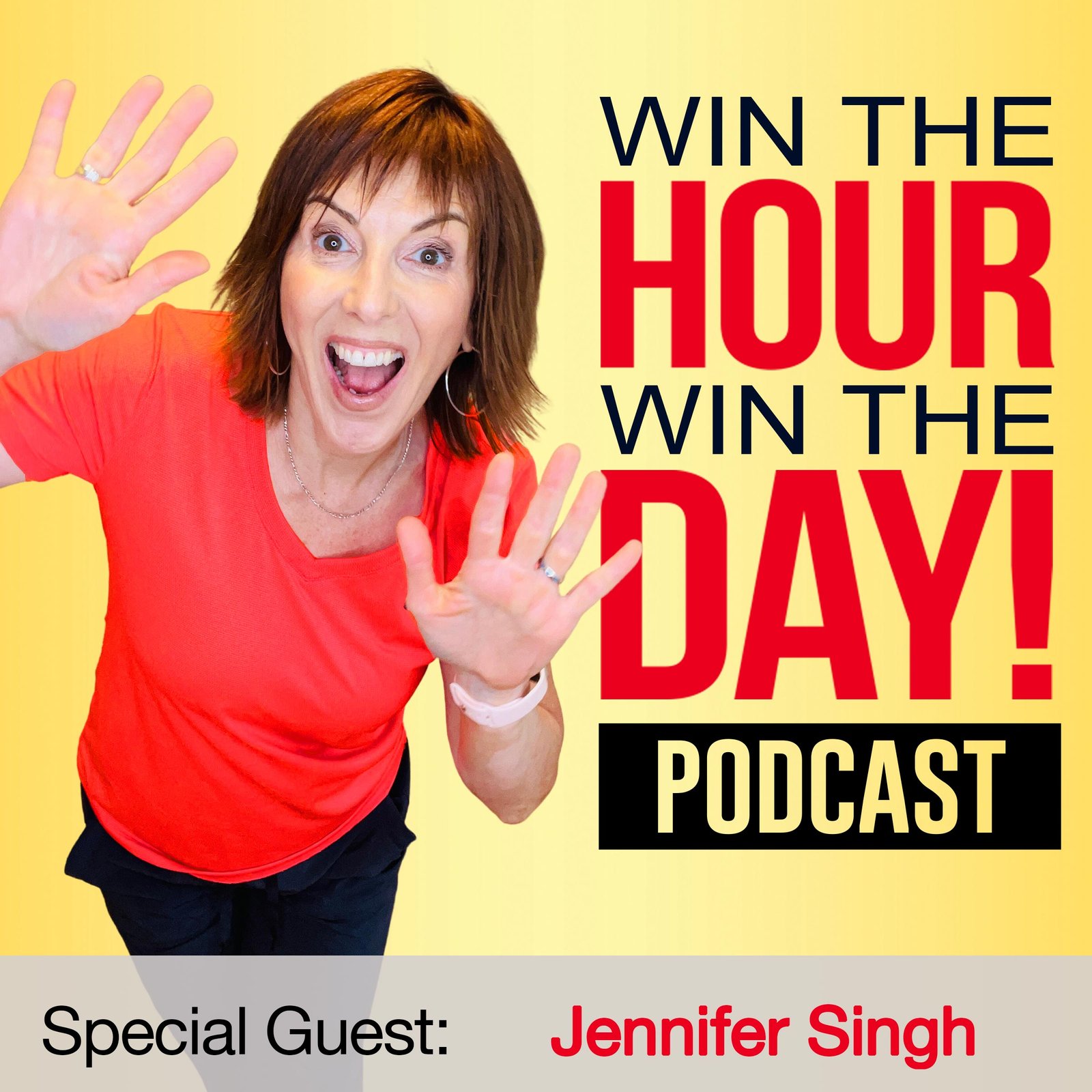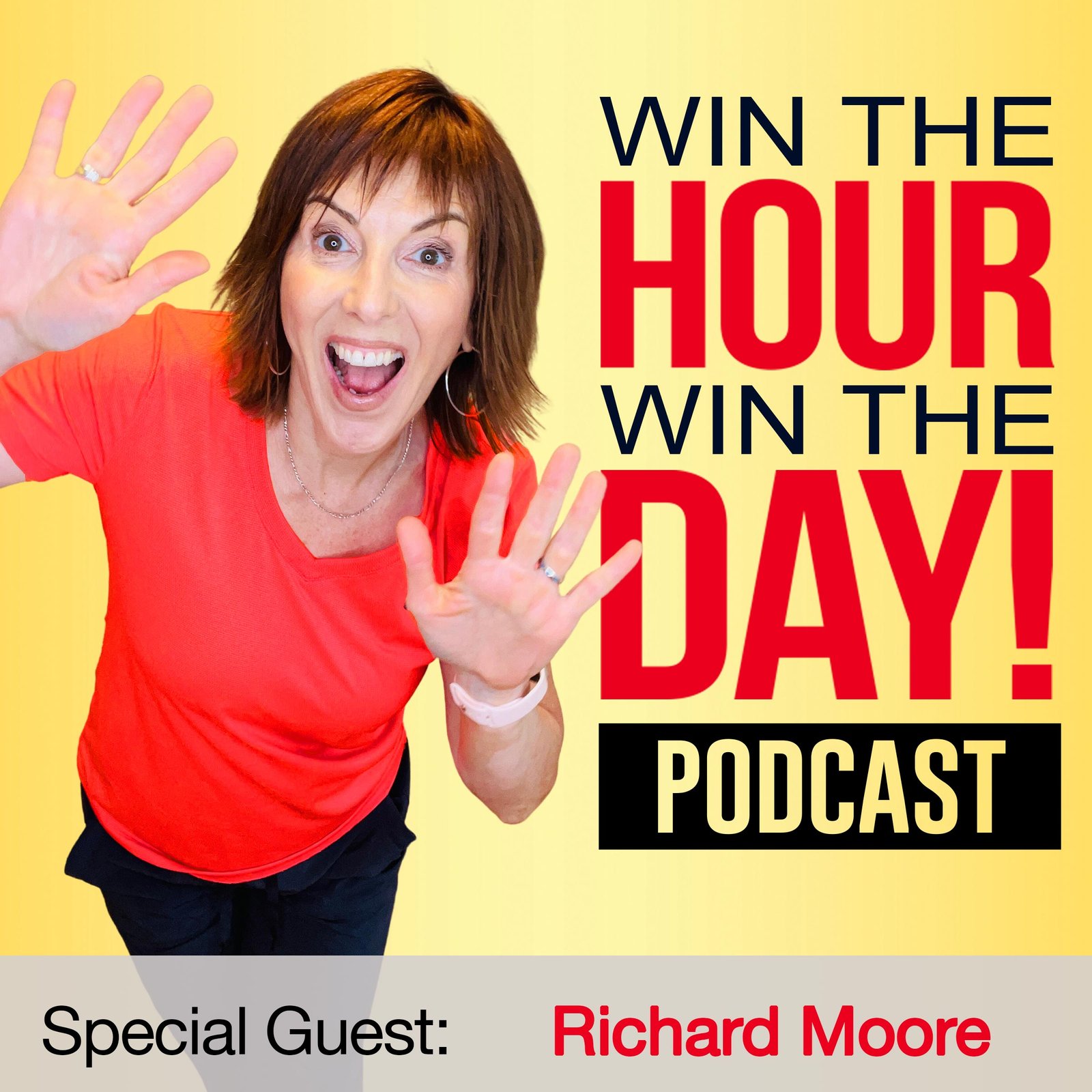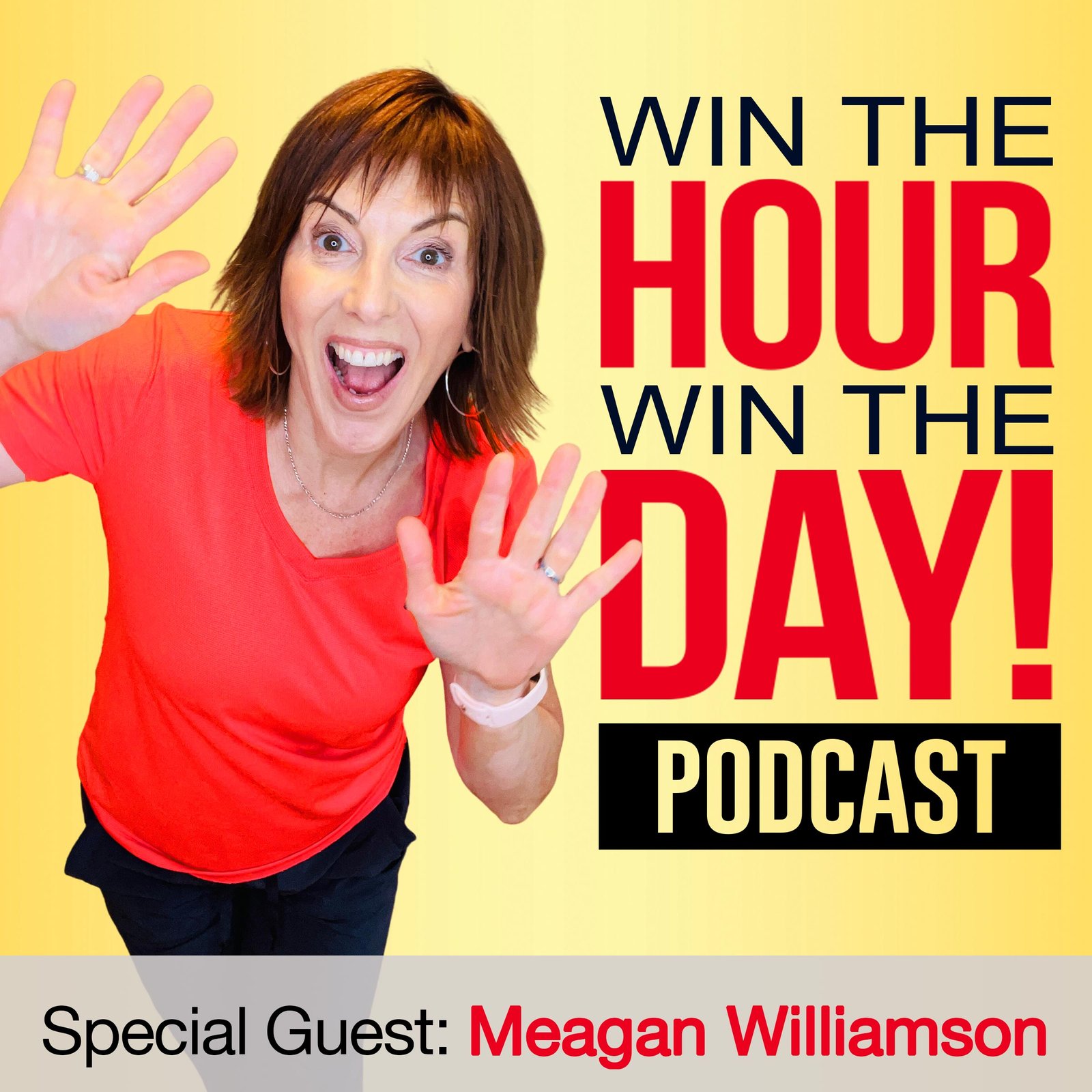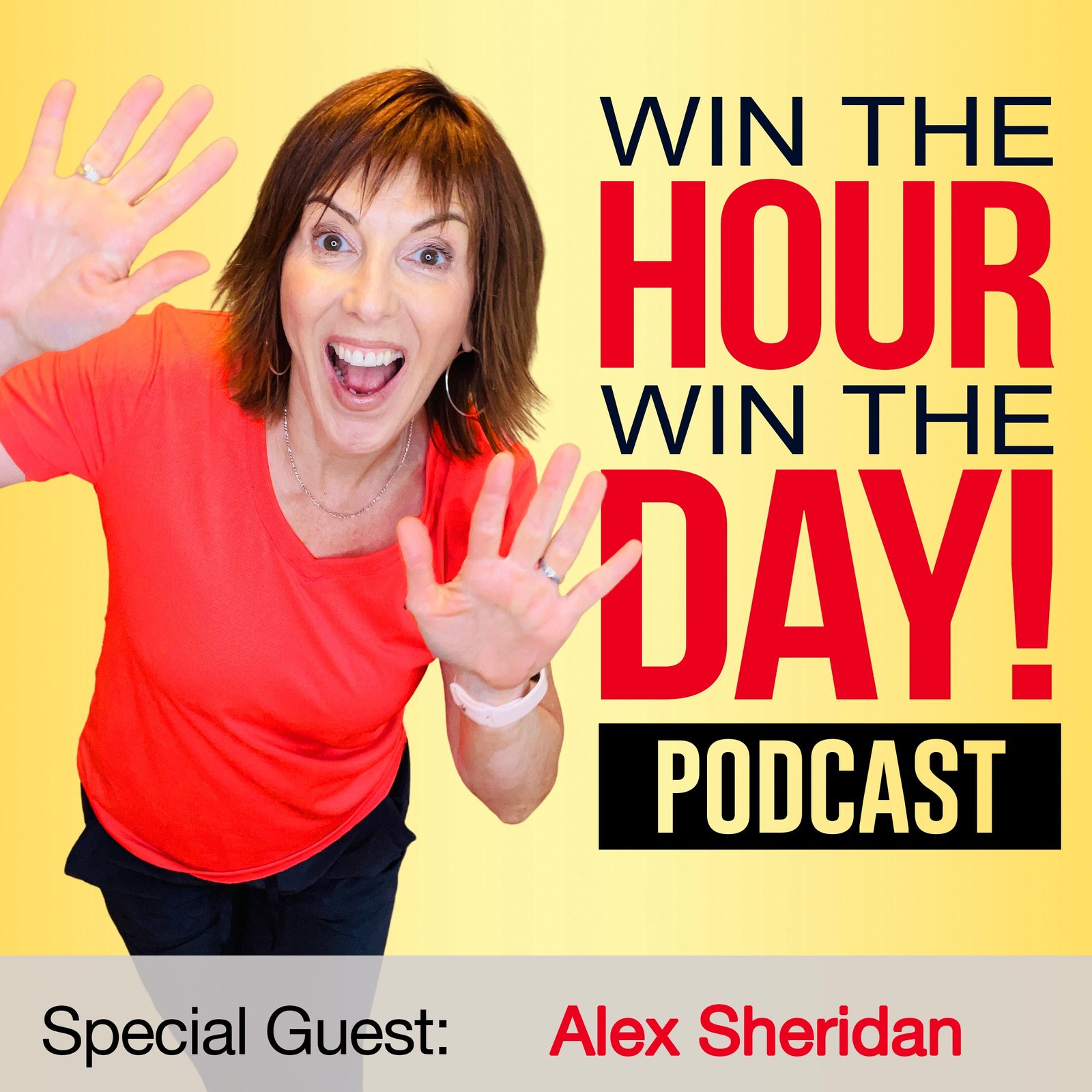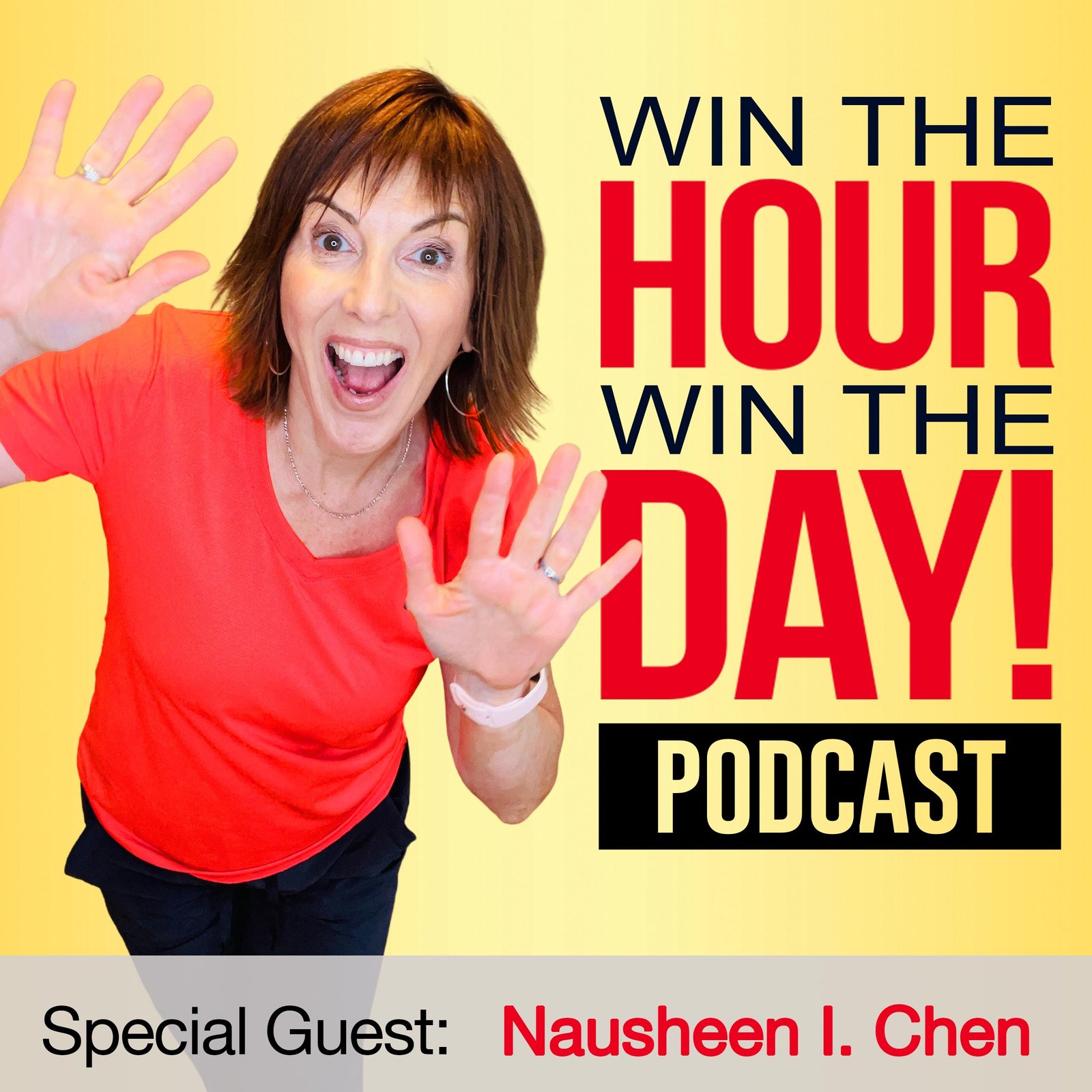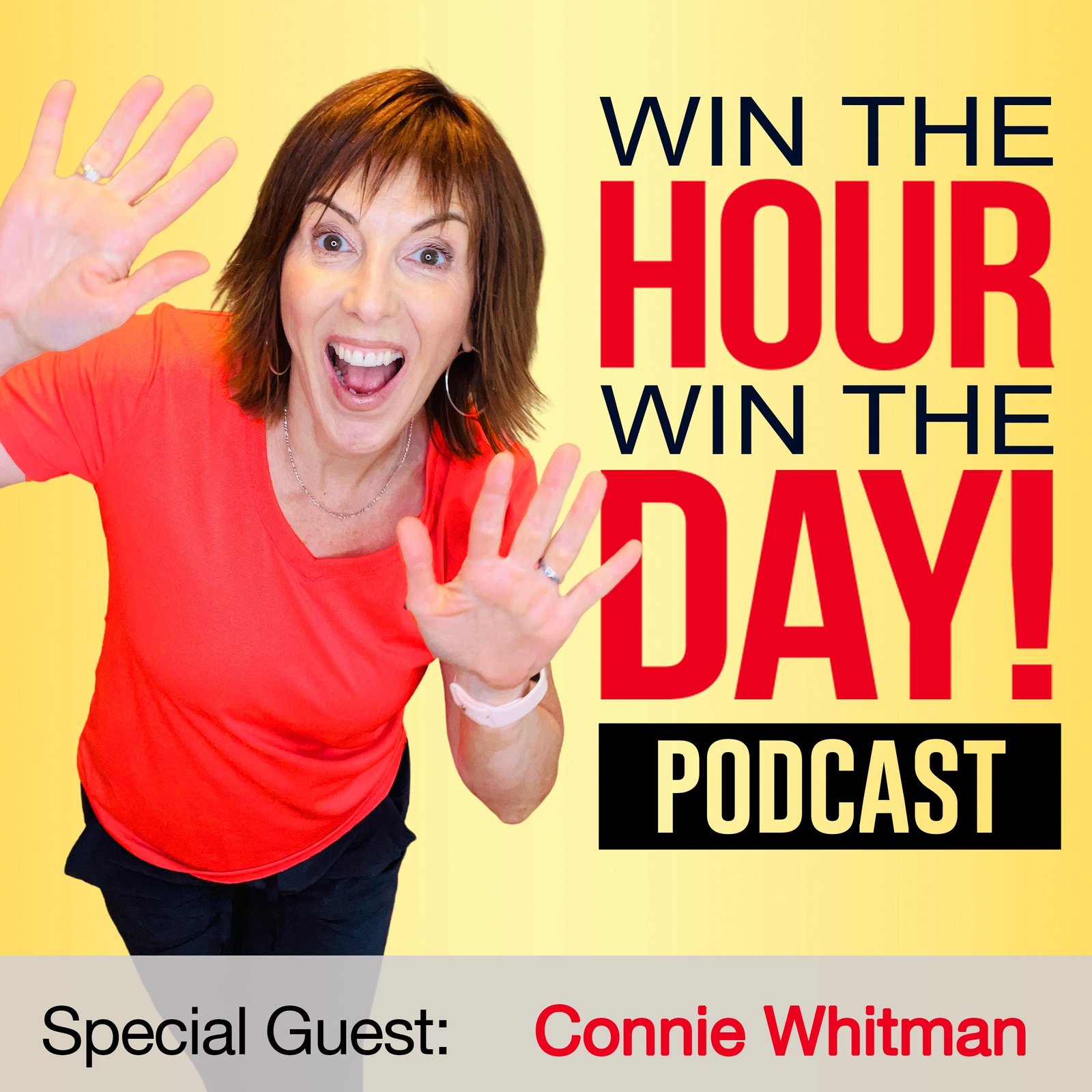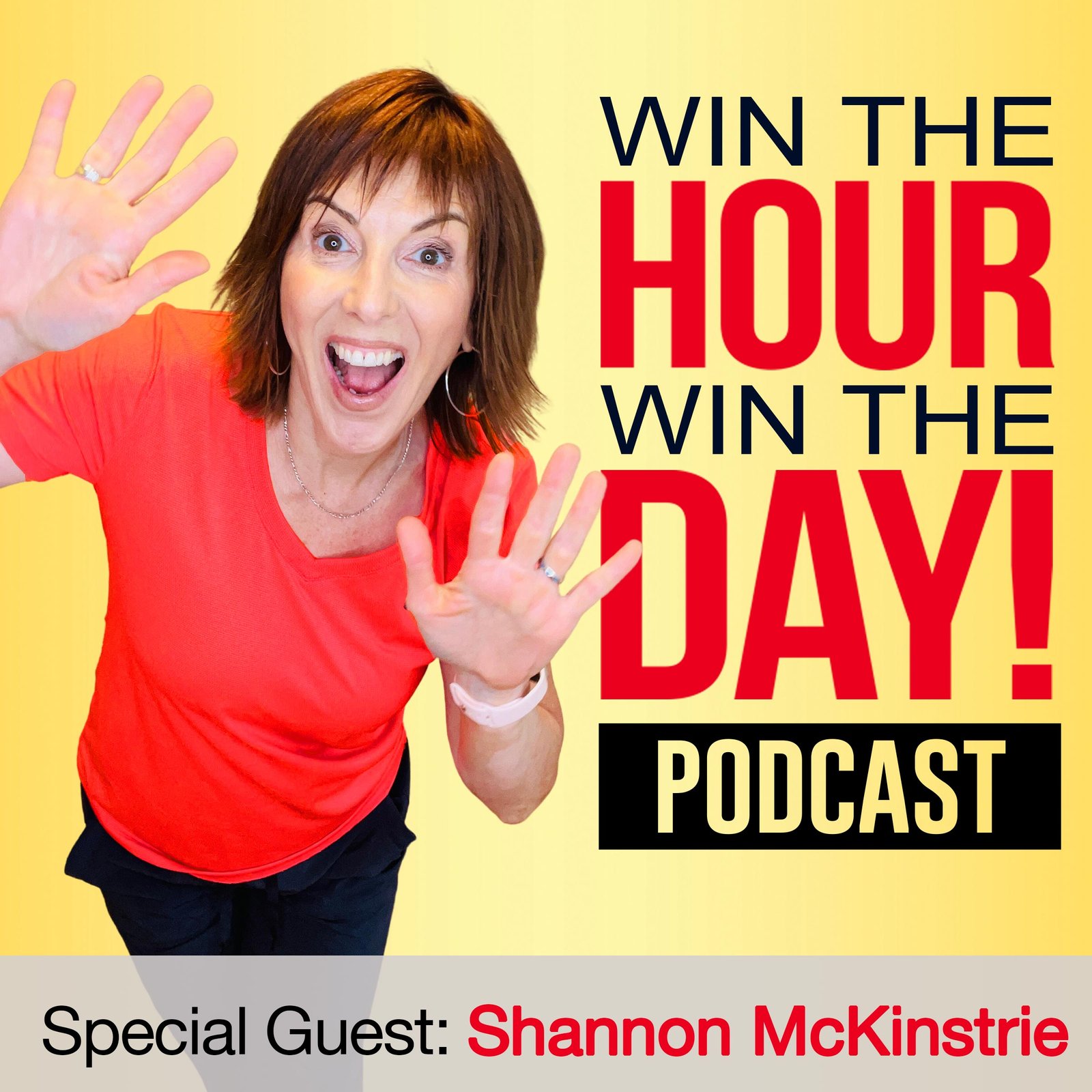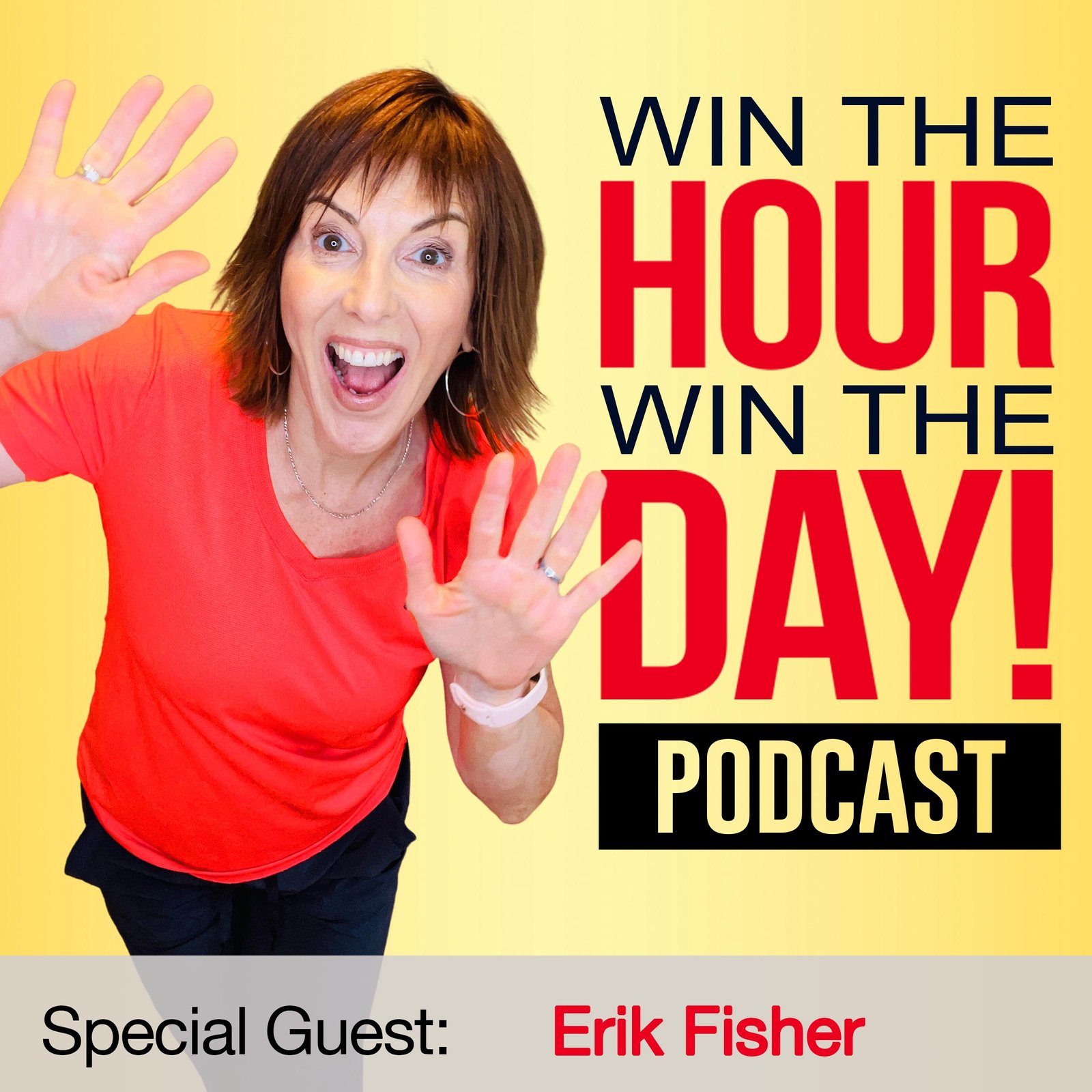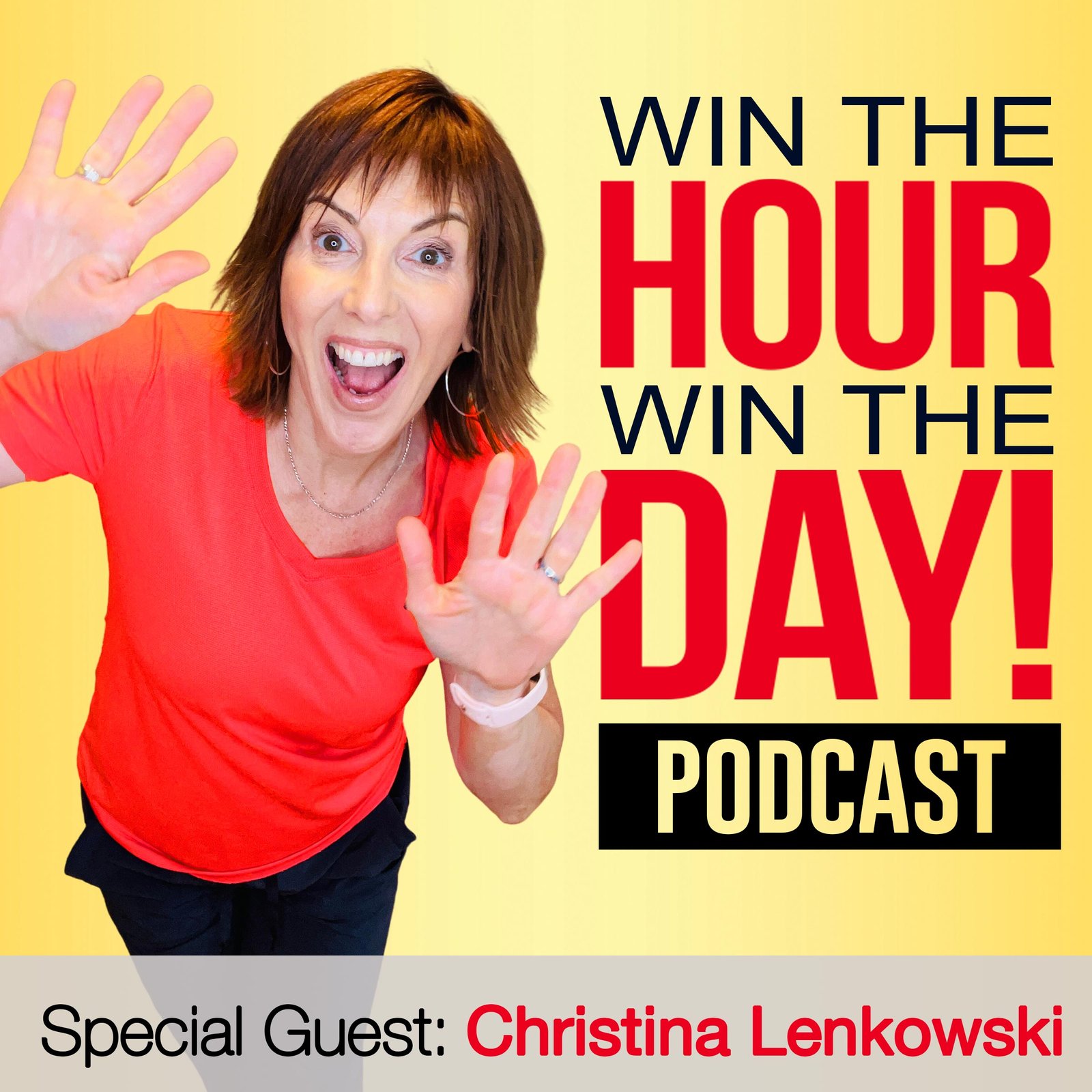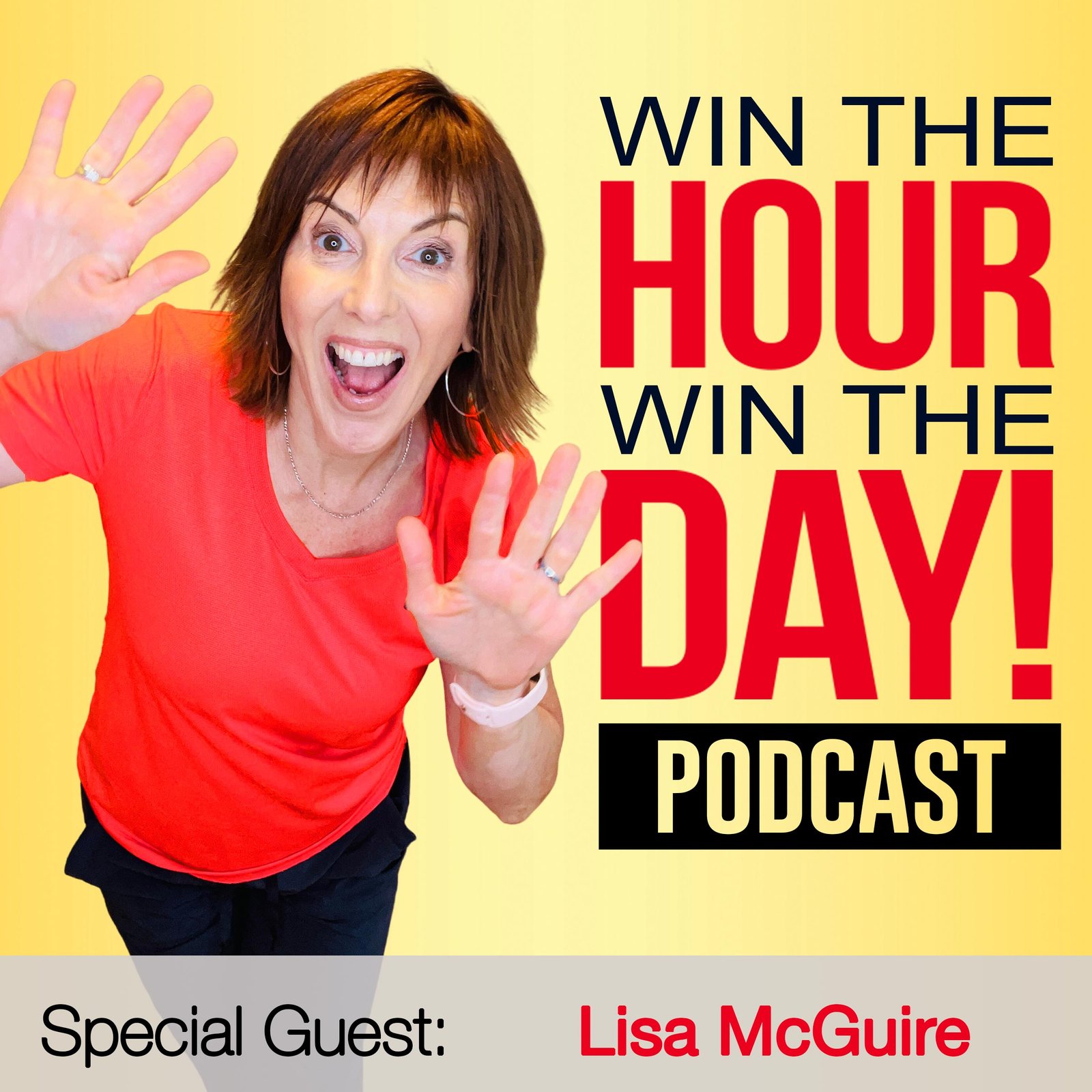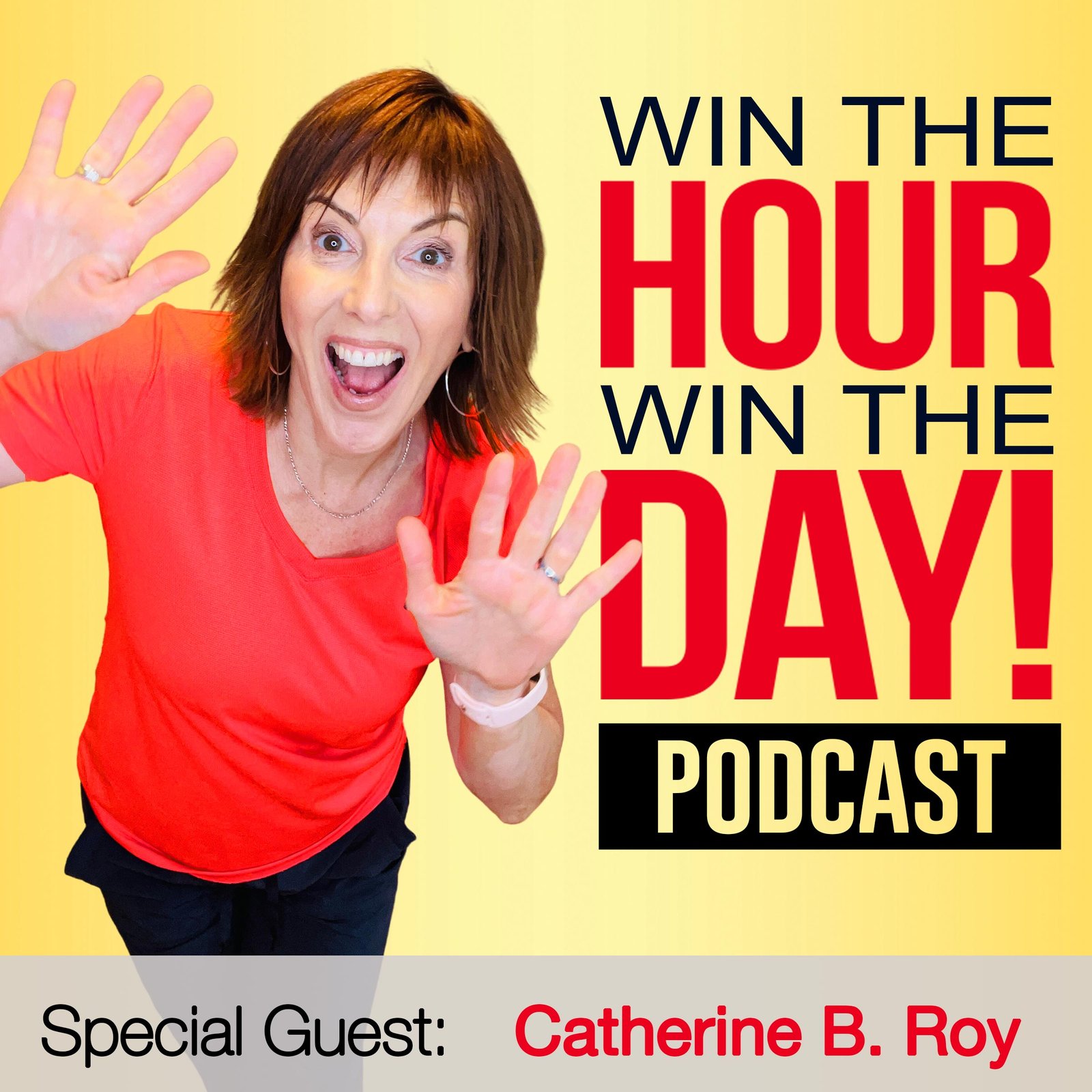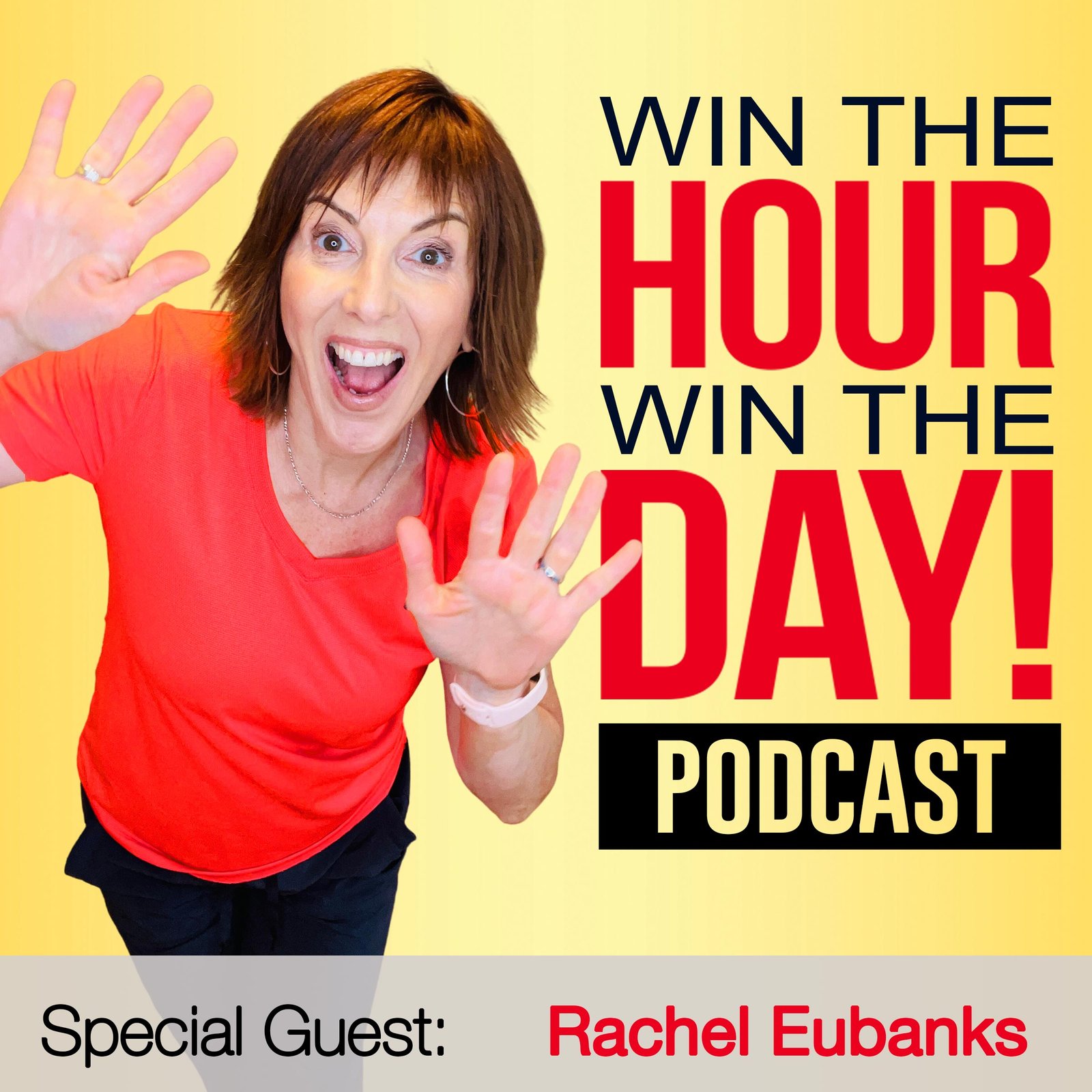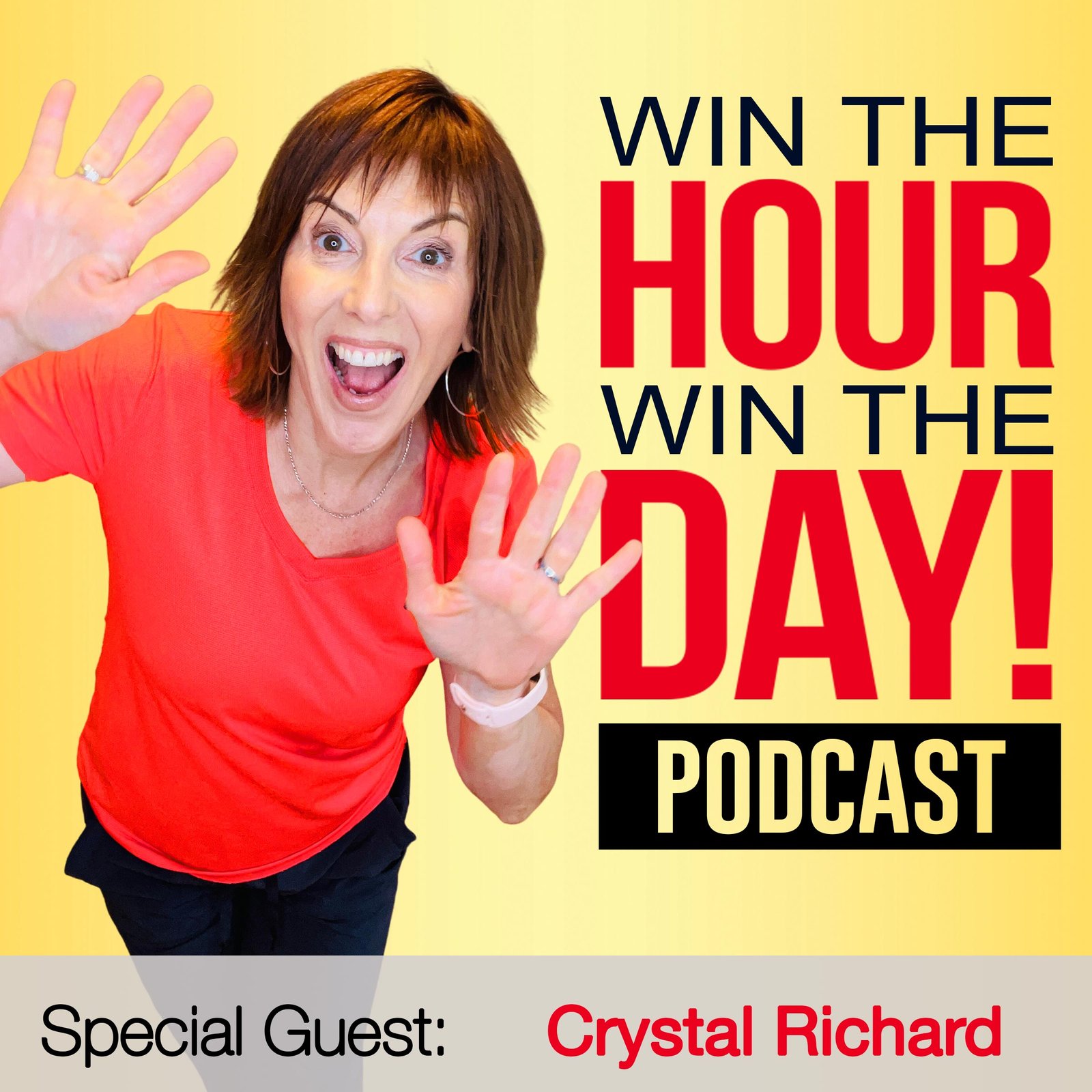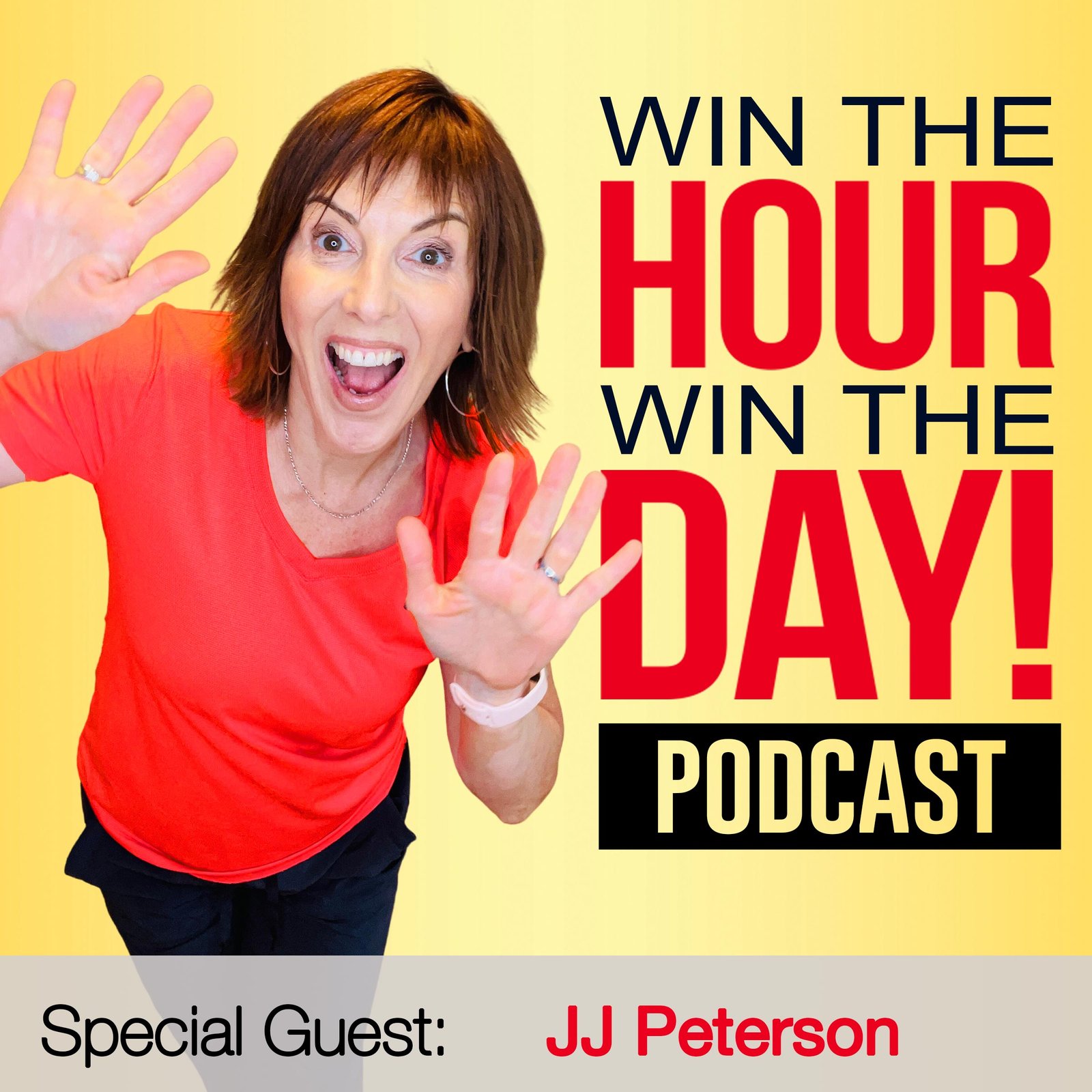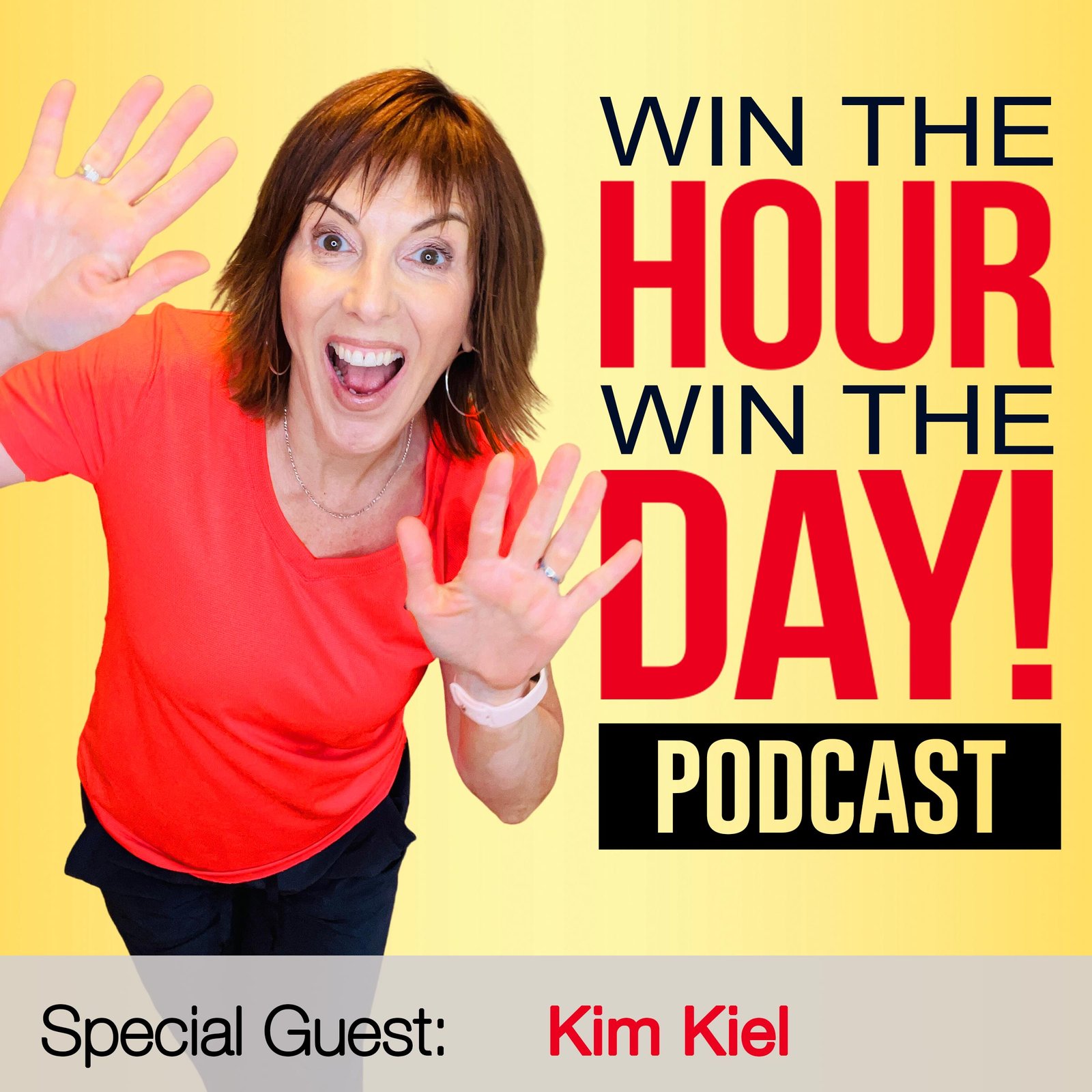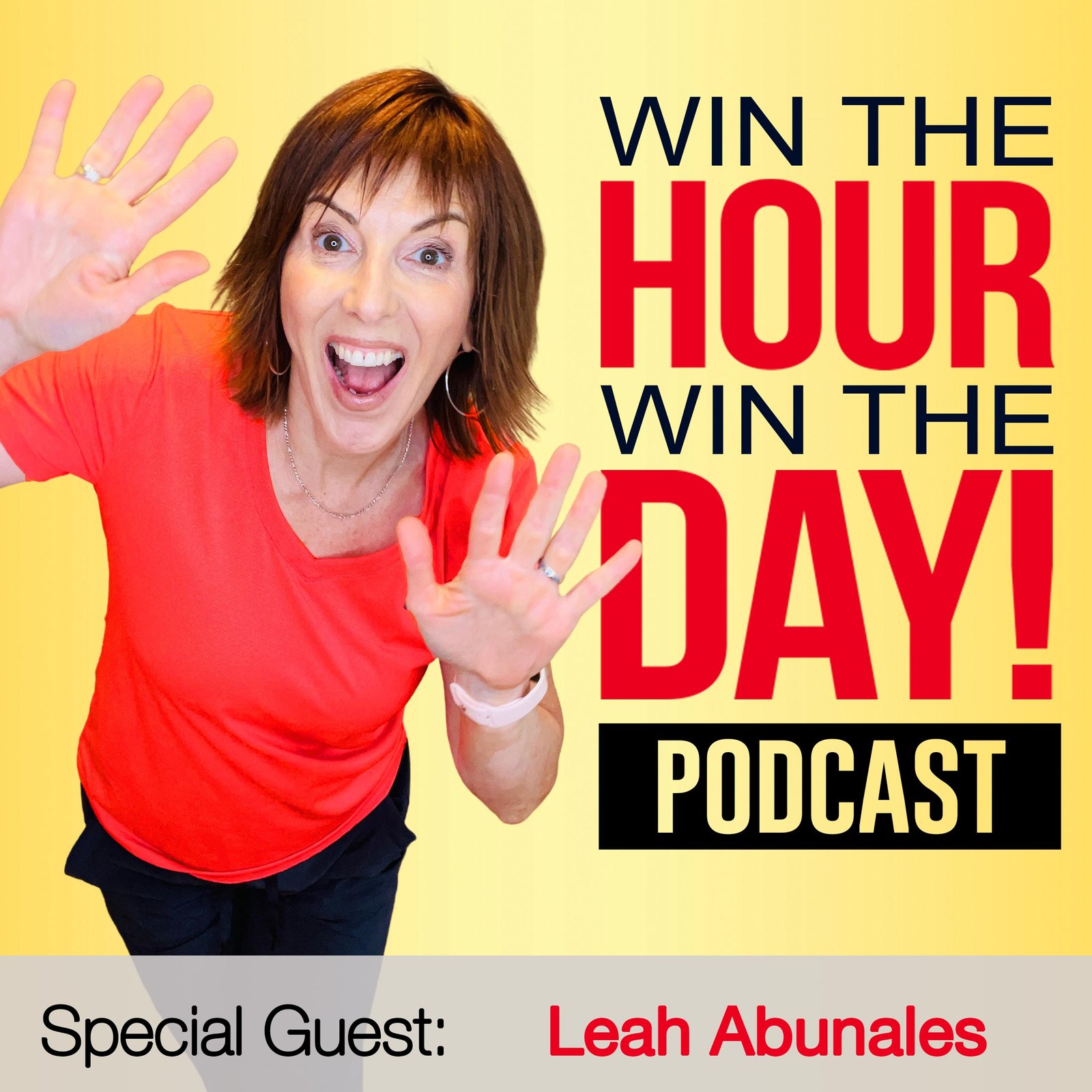Episode Summary This week’s episode of Win The Hour, Win The Day Podcast is...
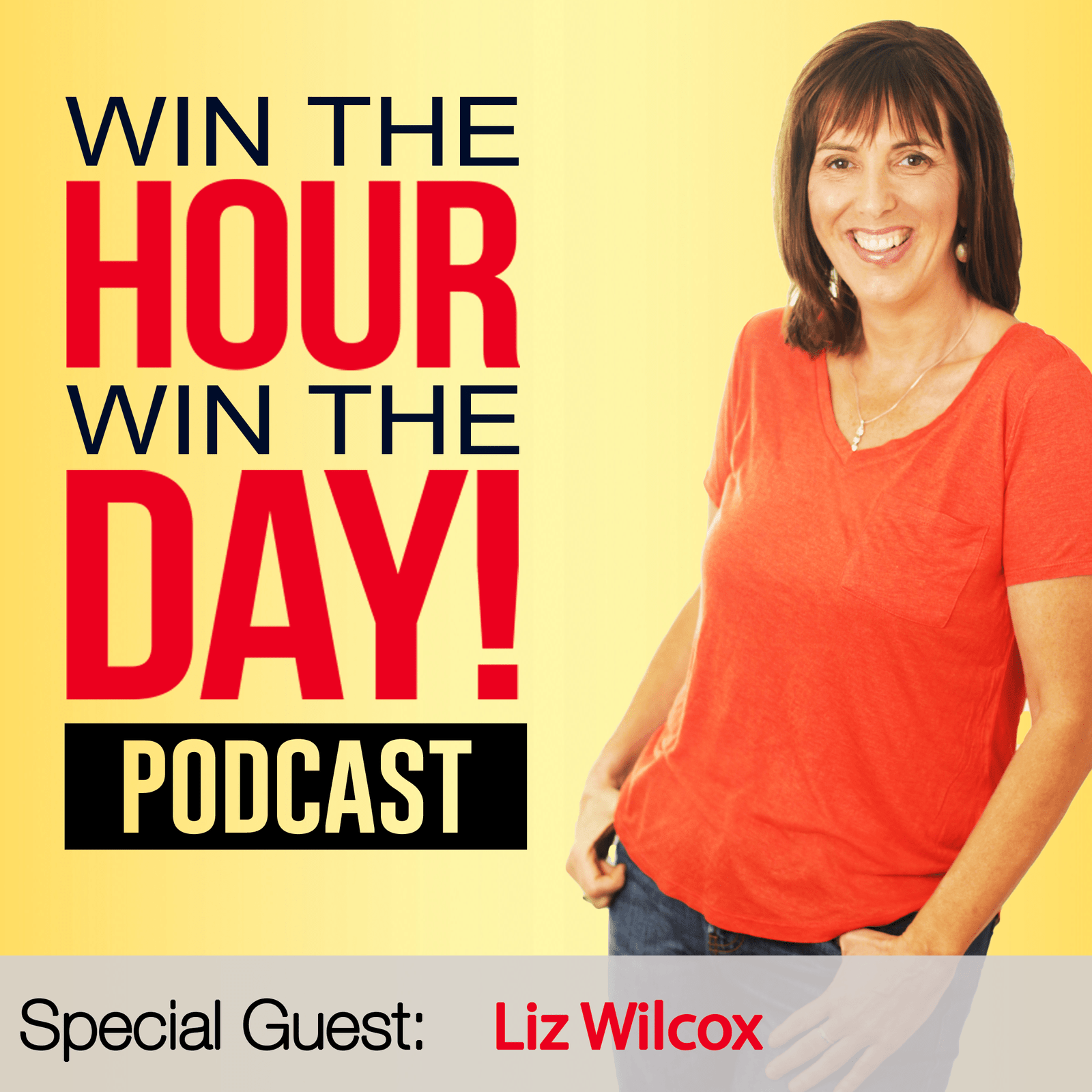
Are You Ready For Your Next Big Win?
Know your entrepreneur personality and I’ll take it from there!
Recent Podcast Episodes
Preventing Burnout with Smart Work Tools! with Kris Ward
Episode Summary This week’s episode of Win The Hour, Win The Day Podcast is...
Master Social Selling: Heidi Medina’s Strategies for Engagement
Episode Summary This week’s episode of Win The Hour, Win The Day Podcast is...
Boost Productivity and Master Storytelling! with AmondaRose Igoe
Episode Summary This week’s episode of Win The Hour, Win The Day Podcast is...
Master Video Marketing: Top Tips for Entrepreneurs with Dan Bennett
Episode Summary This week’s episode of Win The Hour, Win The Day Podcast is...
Boost Your LinkedIn Strategy with AI Tools for Enhanced Productivity! with Joe Apfelbaum
Episode Summary This week’s episode of Win The Hour, Win The Day Podcast is...
Mastering Personal Branding with NLP Techniques! with Olesija Saue
Episode Summary This week’s episode of Win The Hour, Win The Day Podcast is...
Innovative Lead Generation and Email Automation Secrets with Jennie Wright
Episode Summary This week’s episode of Win The Hour, Win The Day Podcast is...
PR Strategies for Diverse Entrepreneurial Impact! with Jennifer Singh
Episode Summary This week’s episode of Win The Hour, Win The Day Podcast is...
Convert More Clients on LinkedIn with Richard Moore
Episode Summary This week’s episode of Win The Hour, Win The Day Podcast is...
Master Business Growth on Pinterest with Meagan Williamson
Episode Summary This week’s episode of Win The Hour, Win The Day Podcast is...
24/7 Sales Boost: Video Marketing Secrets with Alex Sheridan
Episode Summary This week’s episode of Win The Hour, Win The Day Podcast is...
Master Public Speaking Tips with Nausheen Chen!
Episode Summary This week’s episode of Win The Hour, Win The Day Podcast is...
Beating The Burnout With Connie Whitman’s Success Story
Episode Summary This week’s episode of Win The Hour, Win The Day Podcast interviews,...
Craft Your Social Media Content Strategy With Shannon McKinstrie
Episode Summary This week’s episode of Win The Hour, Win The Day Podcast is...
Boost Your Productivity with AI Tools: A Deep Dive with Erik Fisher
Episode Summary This week’s episode of Win The Hour, Win The Day Podcast is...
Boost Visibility: Repurpose Content and Leverage Podcasts With Christina Lenkowski
Episode Summary This week’s episode of Win The Hour, Win The Day Podcast is...
Master Personal Branding & Storytelling with Lisa McGuire
Episode Summary This week’s episode of Win The Hour, Win The Day Podcast is...
Boost Business on LinkedIn with Catherine B. Roy’s Strategies
Episode Summary This week’s episode of Win The Hour, Win The Day Podcast is...
Scale Your Business: Optimizing Virtual Assistant Services with Kris Ward & Rachel Eubanks
Episode Summary This week’s episode of Win The Hour, Win The Day Podcast is...
Affordable PR Mastery: Crystal Richard Unveils Modern Techniques
Episode Summary This week’s episode of Win The Hour, Win The Day Podcast is...
Mastering Business Storytelling with JJ Peterson’s Guide
Episode Summary This week’s episode of Win The Hour, Win The Day Podcast is...
Revamp Your About Page: Guide to Personal Branding
Episode Summary This week’s episode of Win The Hour, Win The Day Podcast is...
LinkedIn Mastery and Video Marketing Secrets with Alex Sheridan
Episode Summary This week’s episode of Win The Hour, Win The Day Podcast interviews,...
The Systems and Processes Playbook: Insider Secrets to Streamlining Your Small Business with Leah Abunales
Episode Summary This week’s episode of Win The Hour, Win The Day Podcast interviews,...
How To Make Email Marketing That WORKS! with Liz Wilcox
Episode Summary
You can find Liz Wilcox at:
Website: https://lizwilcox.com/
Email: admin@lizwilcox.com
Facebook: https://www.facebook.com/The-Liz-Wilcox-103239837942432
Instagram: https://www.instagram.com/thelizwilcox/
LinkedIn: https://www.linkedin.com/in/liz-wilcox-58740b1b0/
Win The Hour Win The Day
https://winthehourwintheday.com
Liz Wilcox Podcast Transcription
[00:02:41]Kris Ward: Hello everyone. And welcome to another episode of Win The Hour, Win The Day. And I am your host, Kris Ward. And today we have Liz Wilcox in the house. Okay. Liz is an email marketing strategist and listen, in case that sounds a little boring to you. I promise it’s going to be exciting. Because I have a lot of questions for Liz, because I’m just going to get full disclosure right off the bat.
Here’s all my garbage, Liz. I am hot and cold with this. I understand how important it is is own your list. And then, I don’t know, it’s like a, a good diet I’m on it for a couple weeks. And then I fall way off. So welcome to the show, Liz.
[00:03:19]Liz Wilcox: Oh my gosh. We are gonna have so much fun. Let’s convert Kris today, guys. Let’s put her Kris to email and you, because I love that you said like, oh, that’s kind of boring.
[00:03:31] Or, you know, I’m hot and cold with this because that is my whole mission in life. Because I know that everyone, oh, this is like, it’s a staircase we don’t want to climb. Right. You know, it’s work, but for me, you can’t see me right now, but I’ve had this like really fun kind of like Floridian jacket on.
[00:03:50] I just found it’s got the shoulder pads and everything. I just found this at the Goodwill yesterday. So I am ready to get this fun and fresh for everyone today. That’s my whole mission is to make email actually fun and actually makes sense. So you can do it very quickly, get it out the door and get on with the things that you actually love.
[00:04:10]Kris Ward: Okay. All right. I’m all in. Okay. So here’s where I do. Okay. So I’m pretty good at producing content for posts or whatever, social media, LinkedIn, all that stuff. So then I’ll just, I’m going to tell you how bad I am. Maybe this isn’t where I’m good at, these weren’t bad at. So I will take that often if it’s a good post and I will repurpose it and use it in my email list, or frankly, to be honest, I’ll put into my email list first.
[00:04:33] Cause I feel like they should get it first and then whatever, like they friggin care. But anyhow, but I don’t think, I don’t have a welcome sequence. I followed the old school Russell Brunson five-part thing, and I didn’t feel good when I was doing it. It’s like, oh, tune in tomorrow when I tell you this.
[00:04:50] And I felt, it was just like, I know it was annoying me writing it and annoys me to read it. Right. So then I just abandoned that. But I’m not welcoming people and I’m inconsistent. And I think where I also dropped the ball, too this is like business therapy here. I find it for the nature of the work I do.
[00:05:11] It’s really hard to give tips, so I don’t want to be pitching all the time or saying, Hey, this is what my clients saying, or this is what I can do for you. So then I just pull back. So let me stop talking and tell us where we can start.
[00:05:23]Liz Wilcox: Yeah. So Kris definitely needs some sort of welcome whether it’s one email or I typically say, you can get away with three or four emails, kind of setting expectations the same way when you listened to this podcast, every time it drops, Kris introduces the guests.
[00:05:40] She tells you what’s coming. Even she’s got show notes, things like that. She’s setting expectations. You have to do that when someone enters your email is too. So, you know, bottom line, if you hate email and you do nothing else today, I want you to make sure in your welcome sequence or when somebody joins your list.
[00:06:01] If you don’t have this yet, you’ve got to set expectations. You have to tell people what’s coming. Like Kris said, oh, I don’t want to pitch all the time. If you tell people, “Hey, this is a marketing channel, I’m going to offer you some free and paid products.” Then it doesn’t feel like, oh, I’m just constantly talking about myself.
[00:06:21] They know upfront. So telling them when you’re going to email them, “Hey, I’m going to email you once every Tuesday afternoon” or whatever, telling them what’s going to be in the emails. Tips and tricks for X or actionable advice or my podcast every time I release it, whatever is going to be in your newsletter.
[00:06:42] And then like, here’s the ding, ding, ding. We’re just getting to it. I love this podcast because Kris just digs right in. Right. Make sure you leave her a review if you have it yet. She’s so good at just digging right in, isn’t she, and so. If you just say, I’m going to offer you free and paid resources free and paid services free and paid products, whatever words you want to use.
[00:07:02] It just tells them right upfront like, oh, Kris is a business. Liz is a business. Michelle is a business, whoever. Right. And so that when you send out that pitch, when you send out that sales email, when you say, Hey, this is a new client testimonial I got for X, check it out if you’re interested. It’s just the name of the game, right?
[00:07:24]Kris Ward: Yeah. Those are some really powerful points. I want to unpack there for a second. So I think what you’re saying is, gosh, darn it. I don’t pretend to like, don’t dance around the subject, just get to it. This is what this journey is going to look like. And I think it’s really profound for me because I’m sitting here hosting the show and you’re right.
[00:07:43] There is expectation. There is a formula we follow. There’s things that I put in play to protect these shows. I jokingly said to Liz, when we started the show, sometimes people compliment me for being a good interviewer, but I just I’m really interested in my guests, which is problematic when somebody wants to be on the show.
[00:08:00] I’m like, I’m just not interested in that. Like I don’t, I think you’re a little boring, you may be smart, but you’re boring. So, I don’t have them on the show. So I guess what you’re saying is really, this is another channel and don’t pretend it’s something it’s not. So we don’t have to send out these emails and pretend it’s anything other than it is. So I think that is a big aha moment for me.
[00:08:24]Liz Wilcox: Yeah. And it doesn’t matter if you are B2B or B2C. These are strategies that I developed in a very B2C, I was an RV travel blogger. Okay. I was trying to sell to men in their sixties that didn’t want to pay for electricity. Okay. They were there trying to get the most bang for their buck.
[00:08:44] And so I just, again, like, let’s just tell it like it is, people appreciate that. The inbox is the same as the mailbox. We go out to our mailbox. Oh, that’s a bill. I’m going to open that later. Oh, that guy moved three years ago. Why are they still sending this mail? Oh my gosh. Liz Wilcox sent me something.
[00:09:02] I’m going to open that right away. So you can do the same in the inbox. Like that’s a bill. I know. I don’t have to open that till the 13th. Oh gosh. I thought I unsubscribed. Oh my gosh. Kris is sending me something awesome. And you can do that again by setting expectations up front, putting in those barriers or boundaries within the email, Hey, this is what it’s going to be about.
[00:09:23] And the people that don’t like it, they’re going to almost immediately drop off oh, free and paid products. I was just trying to get this freebie, but the people that are really in are in, they are going to want your emails. They’re going to click your links. They’re going to hit reply. They’re going to when the offer is right, they’re going to join up because we did that right up right at the beginning.
[00:09:47]Kris Ward: Okay, so setting expectations. Love it. Now you talk also about, you don’t have to tell stories. You may not be a storyteller and in fact, but at the same time to do personal updates every once in a while. So what does that look like in the formula?
[00:10:04]Liz Wilcox: . So, you listen to podcasts like this. You probably heard email marketers, tell stories. Stories are very hot right now. Right? We go to the super bowl commercials. The best ones are always the ones that are telling stories, right. They always win hands down. And so I’m not saying stories don’t connect, but at the end of the day, your emails, they’re newsletters, not novels.
[00:10:28] People are… they’re going in and out of the inbox, they’re searching for something that’s relevant for them. And so when you have a story, when you really, really have a story, go ahead, tell it right. I’ll tell you a story right now. I was just on a call right before Kris and I got on this call and my mom walked in with a towel she’s leaving today.
[00:10:47] And she was like, do you have time to talk? I was like, oh my gosh, I’m dying. That’s a great story. But if that hadn’t happened today, oh, what am I going to write my newsletter? Instead, I’m just going to give a personal update. And that’s just two to three sentences of something that has happened to me since the last time I emailed that makes me a person, right.
[00:11:07] Personal update. And that changes the game for you. It helps you stand out from the competition, right? I might say something like, oh, I just bought this awesome eighties jacket. You go to my website, you see I’m very eighties, nineties style. Oh, that Liz right. And it allows for you to tell a story without telling a story. Does that make sense?
[00:11:31]Kris Ward: Yeah, it does because I think you’re right. I get trapped into, you see this on LinkedIn, sorry to pick on poor LinkedIn, but it could be something like. I don’t know, whatever I need to get a new pair of running shoes. Right. And then you give this big life journey of running shoes and what it was tattered and what you learned from it.
[00:11:50] And it reminds me of life and then it reminds me of your business. And so you’re tying into this political thing, a kernel of a story, and you’re stretching the heck out of it. To land it over here that relates to your audience and your clients and the services that you provide. And so to me, I think that’s where stories got a bad name.
[00:12:08] And you do you just look at everything and say, okay, well, how can I turn this into a meaningful takeaway for my audience? Where in fact you could just be like, oh my gosh, you know what? I love my toes moving around. And I’m like, I can feel the difference in the companies of my new shoes, end of story. Then unrelatable versus back to lecturing and presenting, which I think I know I can default to thinking that’s the right professional thing to do, right.
[00:12:35]Liz Wilcox: Yeah, but sometimes, if you don’t have time to write this story, chances are your people don’t have time to read the story. I’ve worked and this strategy, and this is no shade. Like Kris said, no shade to LinkedIn, no shade to these people. The people that are really good at it are storytellers for a living they’re copywriters, or they’re literal storytellers, like that’s in their bio.
[00:12:58] Right. And so for everyone else, it can, like Kris said, I’m trying to take this kernel and pop it. Oh man. Maybe the story about my mom, you know, I try to set a lesson about boundaries and boundaries in your business inbox boundaries. I don’t know when I could just say, wow, my mom really embarrassed me today.
[00:13:18] She walked in half naked anyway, and this is the segue to answer your question. The framework we’re talking about, then you can segue. You can say just those two little set things and suddenly, you know a lot about Liz Wilcox and you know, capslock on anyway, dot dot. What I really want to talk about today is my new podcast episode is my new LinkedIn post.
[00:13:40] This article I found on the New York times that you might be interested into whatever that content is and it can link to your own. Right. To Kris’s point, she likes to give a lot of tips. She’s very much an educator, or if you’re tired and you don’t have any content that week you can link to other people’s content as well.
[00:14:01] So whatever content you want to share that day, that personal update, some very simple segue. It can be as simple as any way dot dot dot. What I really wanted to share was this article, and then just sign off. Very simple.
[00:14:16]Kris Ward: I think that, you know what, when you’re saying that I had another aha moment, I think when you’re watching a TV show, like I used to watch the mom’s show where I think the Mindy project or something, and what makes the characters most interesting when they really are truly funny is the subtext of them telling a story and sticking in
[00:14:34] irrelevant information. Like one story came to mind where she bought her husband a leather coat, and she saying, remember, we saw that on TV and you said, the guy looked good and I rewind it. And then I didn’t know, our TV did that. Like that’s not on topic. Right. But that’s the point is that’s what makes it conversational when there is these things stuffing in.
[00:14:51] So I think back to so many times, I hear this in my head and I tell people this and I, I practice this when I shoot videos is. Present like you’re talking to someone versus how they taught you to write an essay in school. So I think your points are kneeling down as the interesting stories and subtext of the stories aren’t linear and they weren’t, aren’t all polished. It’s just like, oh my gosh. And anyhow, back at the ranch, here’s what I really want to talk to you about.
[00:15:19]Liz Wilcox: Yeah, I love that key thing is conversational. Making it, even if you are very professional, maybe you talk to mid-career professionals, right. And it’s very B to C type of content in that way.
[00:15:34] Still being able to have that personal touch, that conversational, like that’s the market today, right? This is not 1989. Right. Even though my coat says it is, it’s not. People want that personal touch. The market demands that they know the people behind the company. There’s a reason why Nike, Adidas, Coca-Cola, on international women’s day, they’re posting about it on social media.
[00:16:01] They want you to know. Even though that company is one of the biggest in the world that they have a personal touch. And so if you can do that in your emails, that works really, really well. And it just makes you a person to them. It connects that way when you say things like, Hey, I think this might be a good offer for you. Like, oh, well, I know Kris, I’m going to check this out.
[00:16:24]Kris Ward: Okay. You are. I’m now I’m thinking. I’m looking at this through a different lens going. Okay. Okay. Maybe we could do this. It’s not as dry and painful as I’ve always thought. Cause I was just doing it to get it done when I got it done. But there was no, it was like, all right, I’ve sent it out like enough, but you know, what’s the point of doing that.
[00:16:41] Right. Okay. So why don’t you tell us since man, this has been very eye-opening for me. But right off the bat, you’ve reframed it for us. But what are some other things that you think traditionally, we do wrong or falling into prey of the format? The formula of newsletters versus the personality of it all?
[00:16:59]Liz Wilcox: Yeah. So I think when you listen to a lot of email marketers, you can Google it right now. If your hands are free. People say, oh, for every dollar you spend, you can get up to 40, $45 in return with email marketing. And then on top of hearing, you have to tell stories, seeing that other type of marketing strategies and feeling like Kris, like, oh my gosh, I just have to get this done.
[00:17:25] This is another thing. That’s a big mistake instead of thinking of it. I’m going to use the email to open a relationship and I’m going to play the long-term game. I know I’m not going to get $40 right away. That’s like trying to run a Facebook Ad and thinking you’re going to be a millionaire tomorrow.
[00:17:44] Right. That’s not the way it’s gonna work. You’ll have to learn the platform. It’s the same with email. And so just thinking of it the way you should think of sales, right? It’s not about closing the sale. It’s about opening up that relationship. So while email is very one to many, I can send one email to a thousand people right now you can turn it into one-to-one.
[00:18:06] When you’re conversational, when you’re thinking, like I’m just trying to open up these relationships, that’s when you can really make the dollars. And that’s when you can really connect with your email list, you know what they want, you know, how to sell things. You can either create new offers because you know, who’s on your list or you can craft new sales messages for the people that are on your list.
[00:18:30]Kris Ward: Okay. Hold on. I want to jump in here. Another aha moment for me. Okay. Powerful words. You sprinkle them throughout the conversation and they’re subtle, but I think they’re very powerful. So opening a relationship that just changed how I saw it. And I think what almost to me now, it’s like, instead I think in the past, you know, we’ve got all these different sizes of content.
[00:18:54] Okay. Twitter is small and the blog is big and it broadcast to email newsletter is a smaller version of the blog. And so you’re just thinking of it, like handing in an essay and clipping different sizes of it. But now with the open relationship, I see it more as almost like a journal, but not a journal where you share your woes, which I don’t know why anybody would put something like that in writing to be found later.
[00:19:15] But that’s another story. So, but anyhow, that’s just me. Don’t write it down. You don’t want it on the front page, but anyhow, so I would say now too, I’m seeing this more as maybe writing to a pen pal in an essence of the pen pal being your potential consumer. Right. So coming at it from a whole new perspective.
[00:19:36] So I think, and you were kind enough not to say this, but I really think I’m missing a huge opportunity by taking posts and repurposing them in my broadcast. I don’t think, I don’t think they, I don’t think that goes or I need to make my posts better that are more personal, but I don’t think that’s my best game plan right now.
[00:19:54]Liz Wilcox: Yeah. I think you could condense it again, keep that personal update and then one of the heart of the posts you can put into that email and you can even have people click over to that post. And start generating a conversation from there. If you don’t want to get actual personal replies, or you can say, you know, hit reply, what are your thoughts on this?
[00:20:17] I always say like, “don’t be shy, hit reply”. I’d really like to talk to you and if you’re thinking, oh my gosh, email replies, I already spend way too much time in my inbox. Right. You know, raise your hand if, but I’d liken it to Instagram and DMs, you know, we’ve all heard like, oh, how to sell in the DMs.
[00:20:35] Right? Put this post out there and get them over to the DMs.And you can sell from there. It’s the same with email. If you can write emails consistently, stay top of mind, show that you are invested in your subscriber. They’re going to invest time back into you and energy, money, other resources.
Right? And so if you genuinely say like, “Hey, hit reply. I’d love to hear your thoughts” and you get someone that replies, oh my gosh, that’s a warm lead. Right. Suddenly you’re off to the races.
[00:21:08]Kris Ward: Yeah, fabulous. It really is. It really is changing how I see this. Okay. So it’s a whole different game than what we’ve understood so I can see how important your work is now, because I would tell them, I would argue that nine people at ten.
Guiding us down a very dry and labor’s path of like, okay, I got to get it done. Great. I know I shouldn’t be neglecting this. I don’t own my traffic on the other social media platforms. So we want to have this property over here, but then we’re just doing to do it. Okay. So big thing, open up the relationship, nurture that relationship, really personal updates.
[00:21:47] Excellent. What are some other things that we can be throwing into this to make it a game changer for our audience?
[00:21:56]Liz Wilcox: So I think just in general, being a real person and being open to actually interacting in the inbox is going to change the game. I know we just practice that, but I’ll give you a couple examples. It’s going to change the game for you and your audience. And so, I was just on a call with a woman. It was a one-on-one call.
[00:22:19] And she was, I started talking about my old RV travel days and she said, oh, I know I’ve been following you for six years. And I’ve had three businesses in those six years. And she had finally turned into a customer. It took six years. That was her customer journey to finally get on a call with me. I said, oh wow, that’s really amazing.
[00:22:39] And she said, yeah, you know, you are and she was in a camper at the time. And she said, I’ve been in a camper for a long time, but you know, you helped me stay excited about living and traveling in this camper. And now you’re helping me with the business and it took a long time for us to get to that conversation.
[00:23:01] But because she said, because I’ve been getting your emails for almost six years, every single week. Like you’ve been a part of my life. And so, I’ve been able to impact her in that way. And then on the business side of things, she was a warm lead until she was ready. Cause people don’t buy when you sell, they don’t buy at a launch.
[00:23:23] Right. They buy when they’re ready. Right. When you sell ethically. I just loved that. And so I love being able to help people in that way, giving them advice. I do a lot of, if people reply to me, I’ll send a personalized, like loom video, L O O M and say, “Hey, you know, that was a great question. Here you go.”
[00:23:44] And yes, again, that takes time. But do you think when I go to sell something. They’re going to be open to clicking and probably even buying you’re darn right.
[00:23:57]Kris Ward: Yeah. Yeah. I’m all about replying with video, for sure. I think what you’re saying too, which can be an inspiring and discouraging story at the same time.
Cause we don’t want to wait six years. However, I think what you’re saying is kind of reminds me one time. Somebody replied said sent me a message on LinkedIn and they were talking about something that happened quite some while ago. And I was like, wow, okay. Like I’d never seen them comment on anything. I didn’t know their name.
[00:24:21] And she said like, I was trying to hint to that. And she said, oh, I’ve been following you for years. You know? You never know. You never know who’s looking at your stuff. Like I, yeah, I don’t comment. I don’t like I don’t get into it, but I’ve read everything. So you, you know, to her point, you never know who’s following you.
[00:24:38] So I think. That is the… well you’re right. We look at the open rate and we were looking at, okay, hey you know, don’t be shy reply, and then no one replies and you think, oh, that’s crickets. That didn’t work. But just because they didn’t clap or raise their hand, doesn’t mean it didn’t work. So I think that’s it.
[00:24:54] Also, our expectations sometimes are really off with the email you think, well, what am I doing back to your again? Why don’t we all listen to me while I have business therapy here? I think I just had another aha moment. It’s really like you don’t have a relationship in your life, you nurture relationships and do things for people that matter to, to sustain those relationships, not to get immediate returns.
[00:25:18] Right. And so we’re so focused on numbers and okay, how many people open this and what’s happening and stuff, but that isn’t the goal. The goal is to open a relationship, nurture it and maintain it.
[00:25:32]Liz Wilcox: Correct. And I think to go back to your original question about like the impact on the audience, doing those personal updates and sharing just those quick, like subtext stories really has a large impact.
[00:25:46] You know, I might say something about the mom’s story and somebody might email me back. Maybe I’m sharing about open rates that week, but that’s the thing that they’re focused on and they say, oh yeah, I have a difficult mother too, suddenly they feel really, not so alone. Right.
[00:26:03] So sharing those personal updates and again, you don’t have to get too personal. It can just be two to three sentences, but those are the things that connect, like if back to that story, Kris told about the show of saying, oh, I didn’t even know our TV could do that. You laugh at that because we’ve all had that moment of like, oh yeah.
[00:26:24] At first, when I first learned about DVR or learn that I could turn change from my regular internet to 5G or whatever, and that those are those mini micro impacts over time that when they purchase your program or they buy your product, like there’s already so bought into you and your company that they’re going to take action. They’re going to actually invest and really, really see results.
[00:26:54]Kris Ward: Yeah. And then as a consumer too, I’ll see things where I go, oh, I feel like I know that person. Right. So when you do your… we just have a few minutes left. When you do your broadcast, your emails, do you do a personal update in everyone?
[00:27:07]Liz Wilcox: I pretty much do, unless I actually have a story where I’m like, okay, I’m really want to share it. I’ve got a nugget here or I do something really short where it’s like, “Hey, this is really short. Just click this link or something.” And so on. What I want you to take away today is in the inbox. And really with any marketing, you want to be very familiar. I know who Kris Ward is Win The Hour, Win The Day.
[00:27:37] Yep. But you do not want to be predictable. Right. Okay. Remember, the inbox is like the mailbox. If Kris sent you something the first time. Oh my gosh, this is amazing. I can’t believe what is it? I got to open it. The next week, she sends you something. Oh, another thing, let me open it as she kept sending you the same thing every single week, suddenly that you would start piling up those packages.
[00:28:01] Oh, I know what’s in there. I don’t have time for it right now. And so in the inbox the same way, if you can bury your content. Sometimes long, sometimes short, putting that person, making that personal update a little different every time. You’re not always talking about the weather, making that content different, that is going to get you like, oh, I know who Kris is, but oh, I wonder what’s inside.
[00:28:27] We’ve got to keep them curious. So, yeah, a personal update can vary that content for you very quickly. But to my point, if you’ve got a story, definitely share that if you want to keep it short that week, don’t worry. Some of my emails are less than a hundred words, but I vary the length that I vary the content to stay very familiar.
Oh, I know who Liz Wilcox is. That’s that nineties chick with the headband. So always talking about email, but I don’t know what’s inside. I have to open this right away.
[00:28:58]Kris Ward: That’s a good point. Cause I do sometimes like I get, I’m an organized person, but that can I tell people all the time that can be a deficit too?
[00:29:06] Cause I do get structured. Like I’ll leave it. I had an argument with myself one day I was like, something happened. I normally do my laundry in Friday nights and I was like, oh my gosh. Well that means I can’t do laundry. I’m like Kris. Who cares. You’re like, I have a laundry it’s in my house, but I get into this formula of, oh, I do this on Friday nights.
[00:29:25] Well, what will happen if I live wild and do it Thursday or Sunday? Like, I’m going to be fine. So you’re right. I do. I could fall into a tight formula. This is the broadcast. This is the email newsletter. This is how we do it. But you’re right. Don’t be predictable. Excellent. Okay. Liz, you have been at treasure.
I’ve had a lot of aha moments. I’ve been making a lot of notes myself. So I’m sure you guys got the same. Just pull over. If you’re driving, don’t be texting and driving and where can people find it more of your brilliance?
[00:29:56]Liz Wilcox: Sure. So obviously I’m an email marketer. I would love for you to join my email list. You can go to listwilcox.com in the top right-hand corner. There’s a hot pink button. You can’t miss it. It says free email swipes. So if you’re like Kris and you don’t have a welcome sequence or you’re like, oh, I don’t feel like I’m really setting it up for a relationship type of thing. I have an entire welcome sequence.
[00:30:16] It’s only four emails. I promise it’s probably less than 2000 words. It’s already written for it. You can take the Liz Wilcox out. Put yourself in it and use it. I also give three newsletter examples, so you can see what the heck I’m talking about by personal updates, segwaying into content. And if that’s not enough, of course, I’ve got 52 subject lines for you for an entire year. So you never have to write from scratch because that totally sucks. All for free at lizwilcox.com that hot pink button.
[00:30:46]Kris Ward: Well, Liz, I don’t have any more time to talk to you cause I got to get over there and start downloading. So you have been a treat everyone else. We will see you in the next episode and thank you very much. END[00:31:00]

